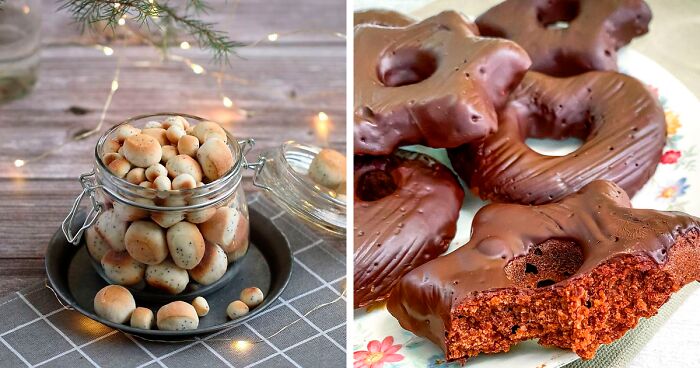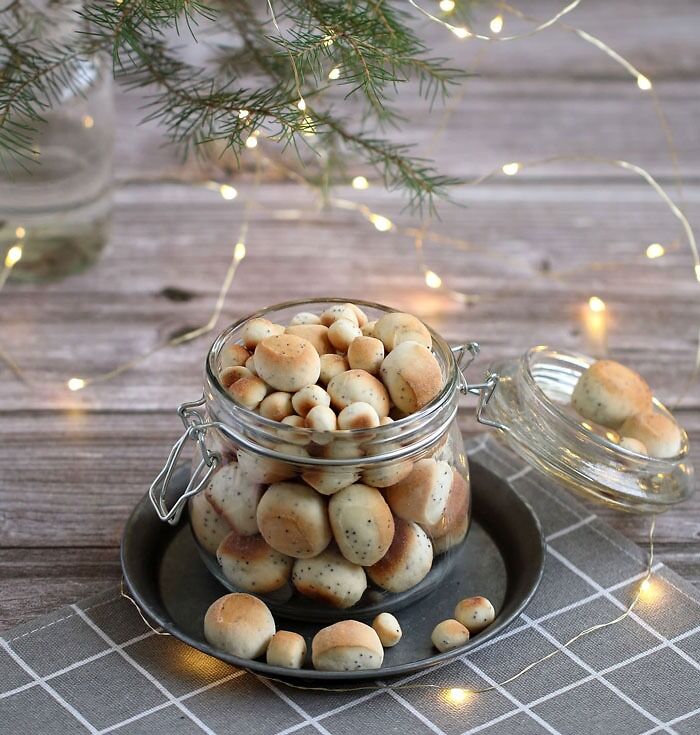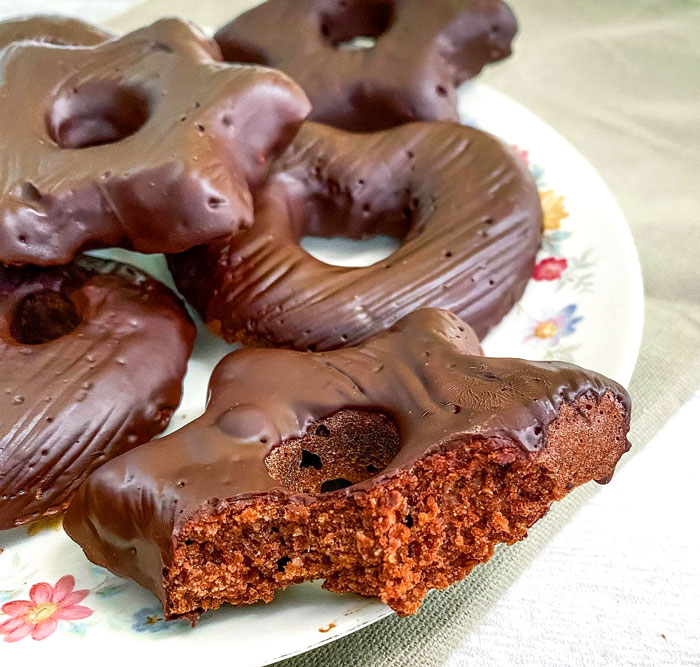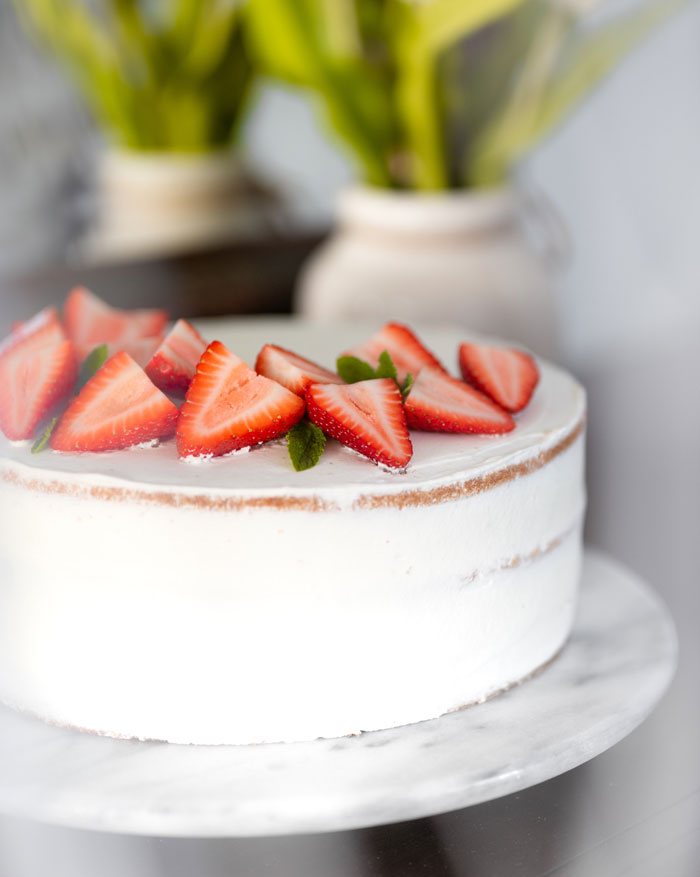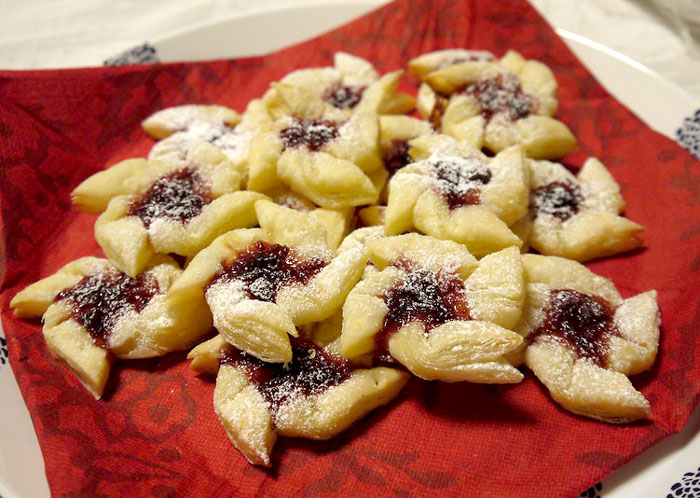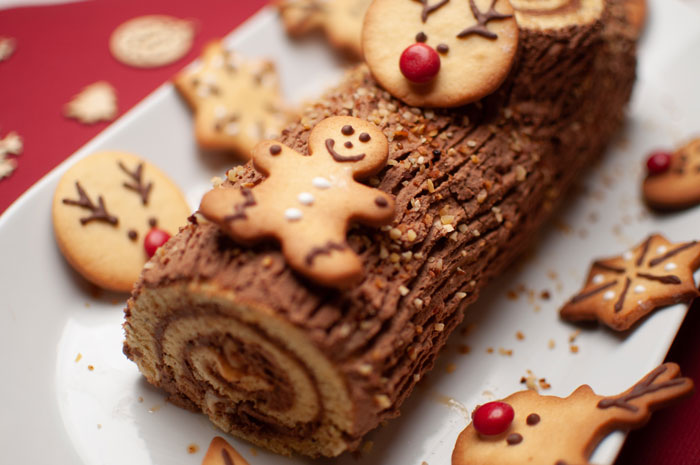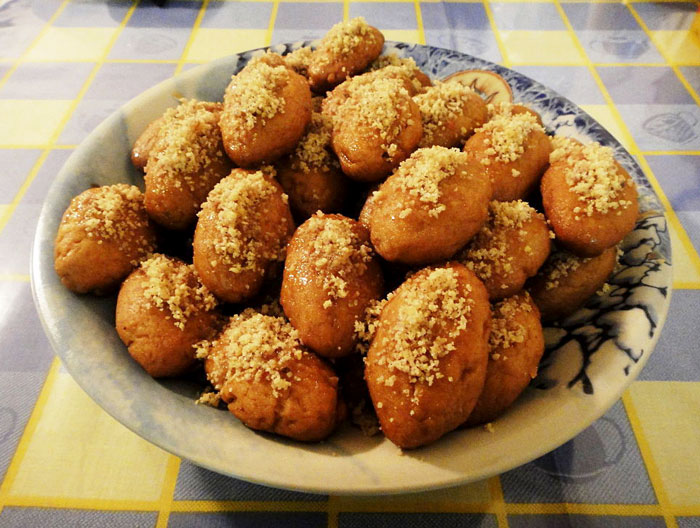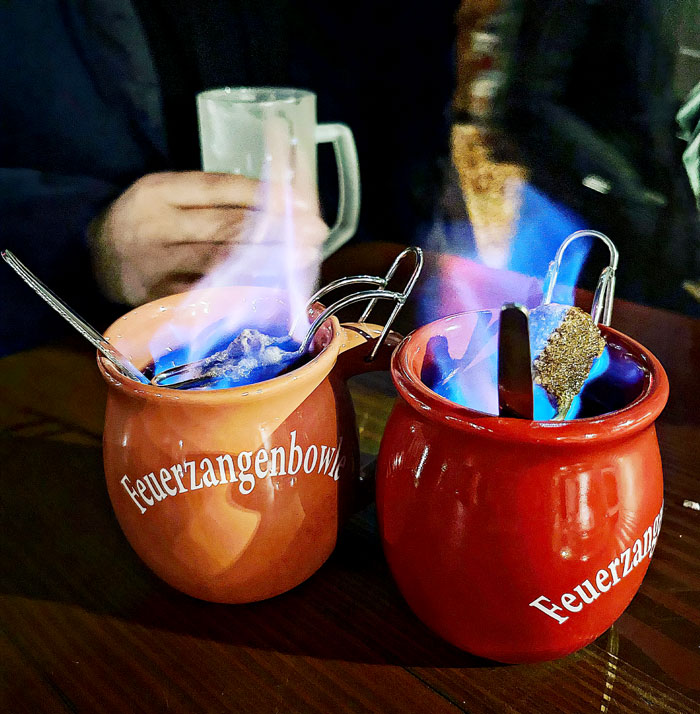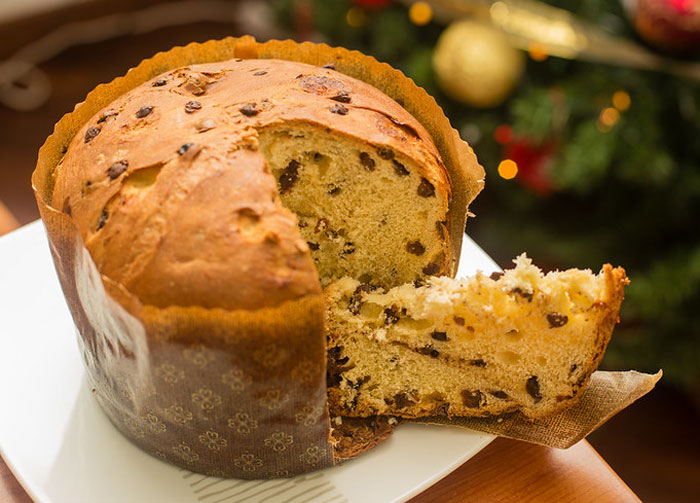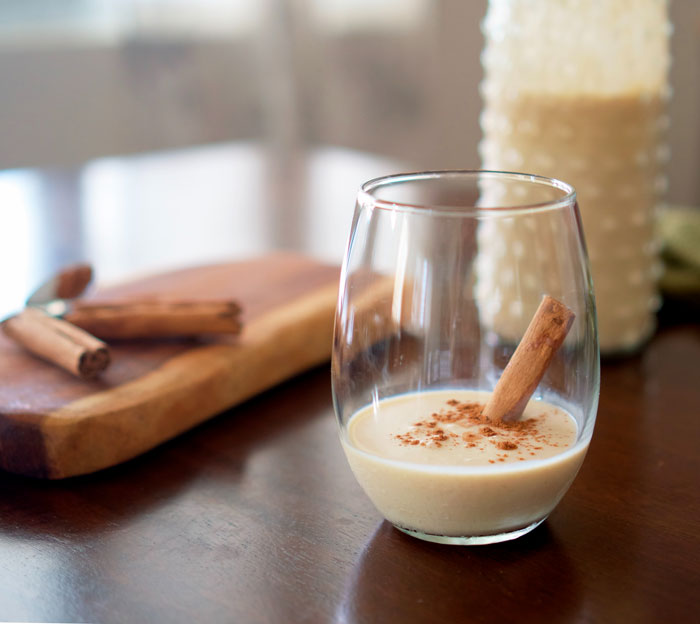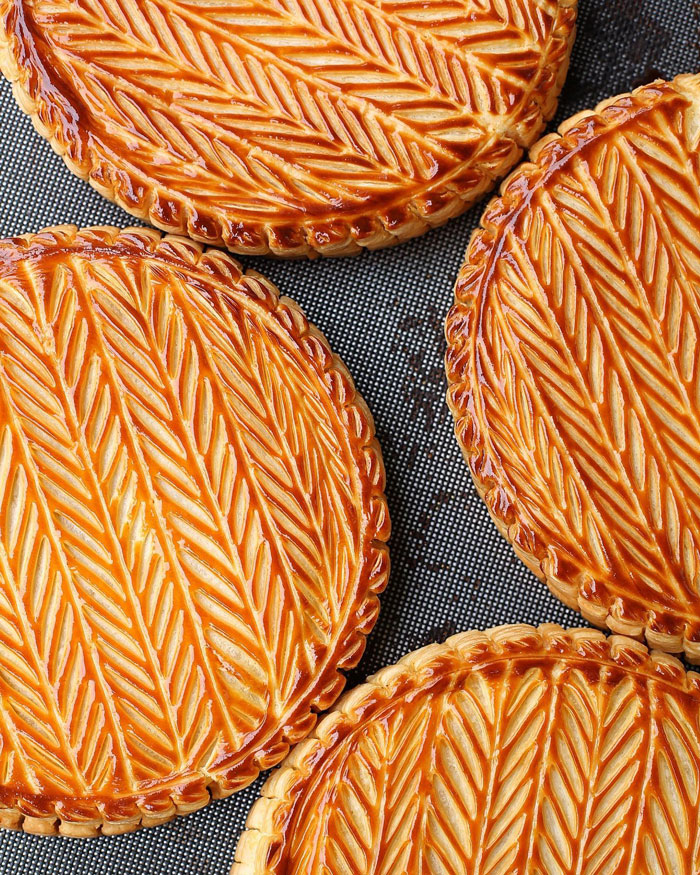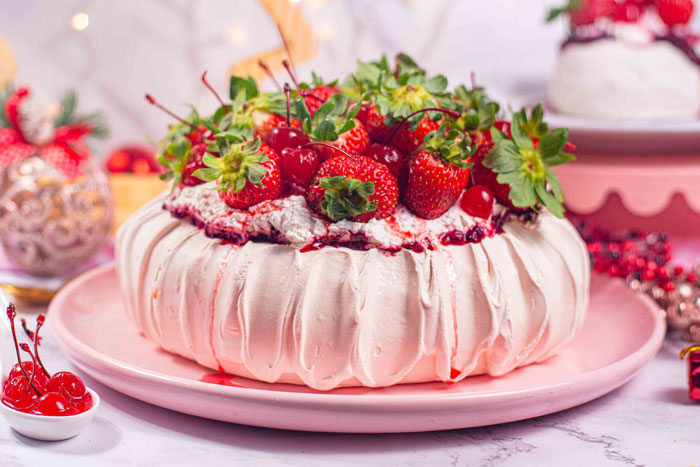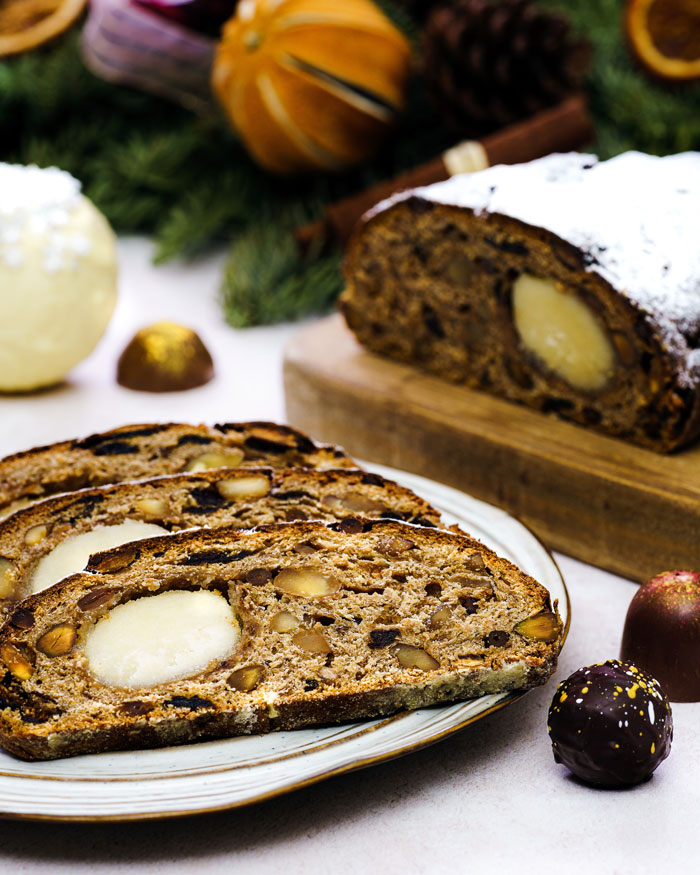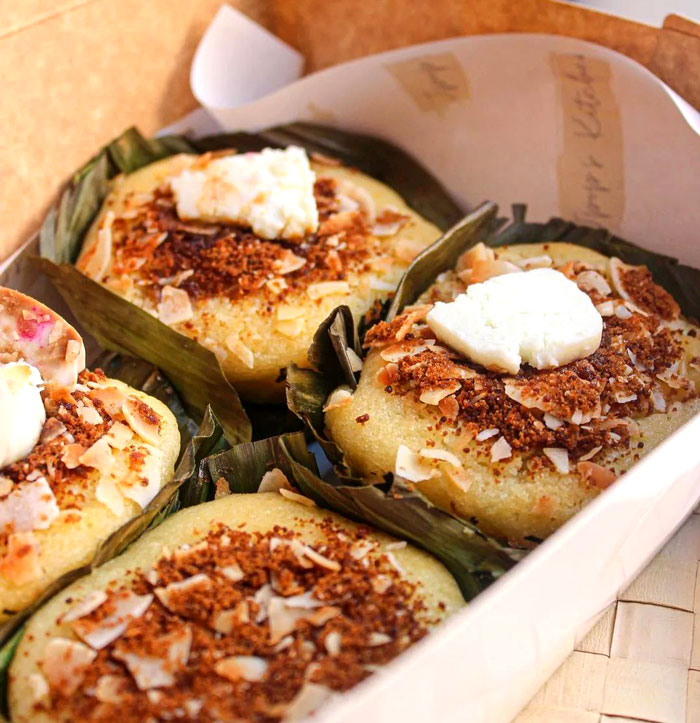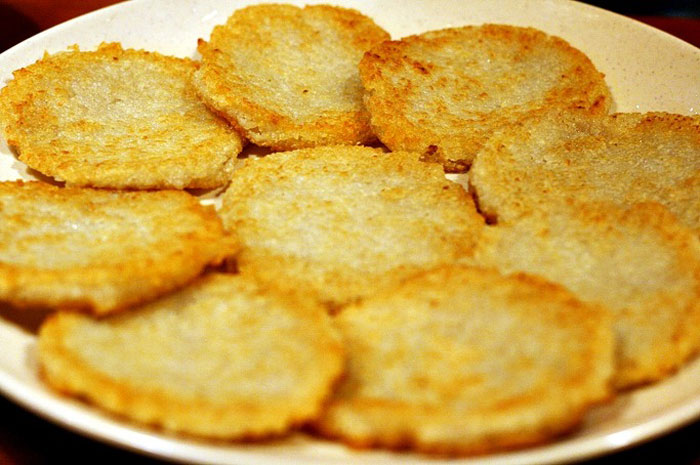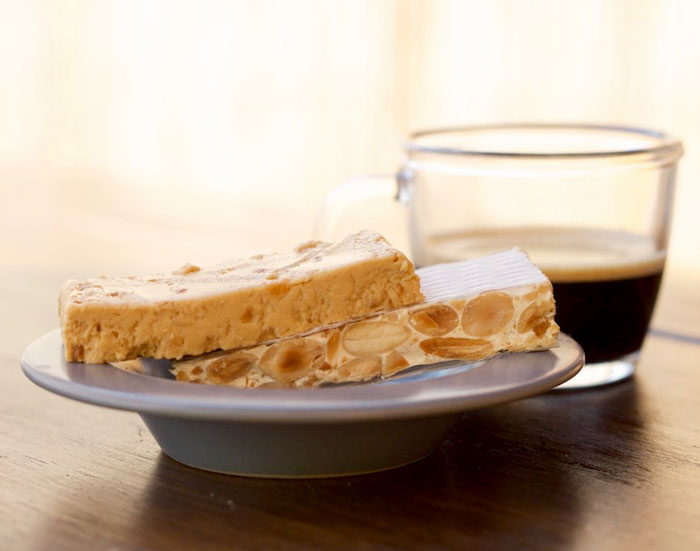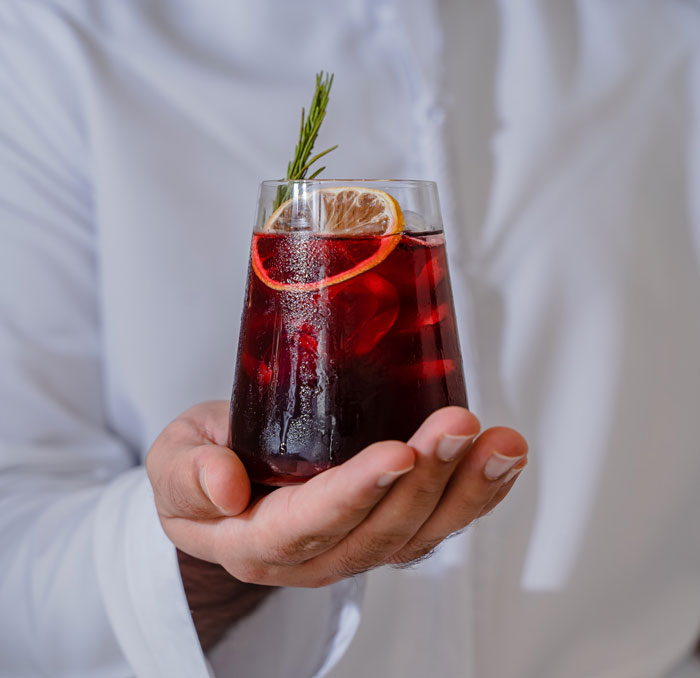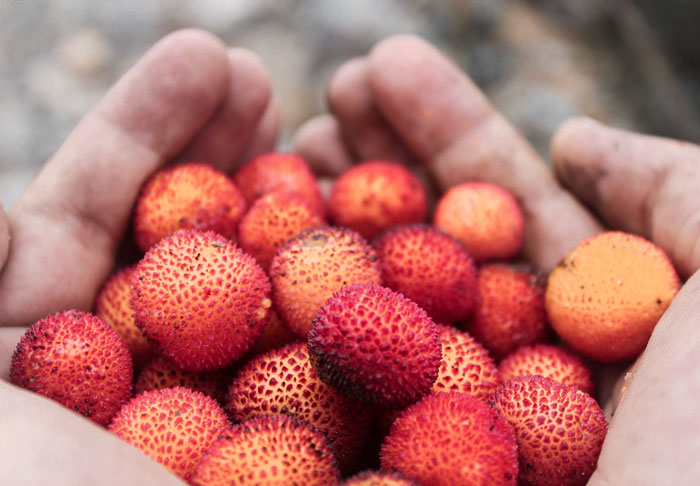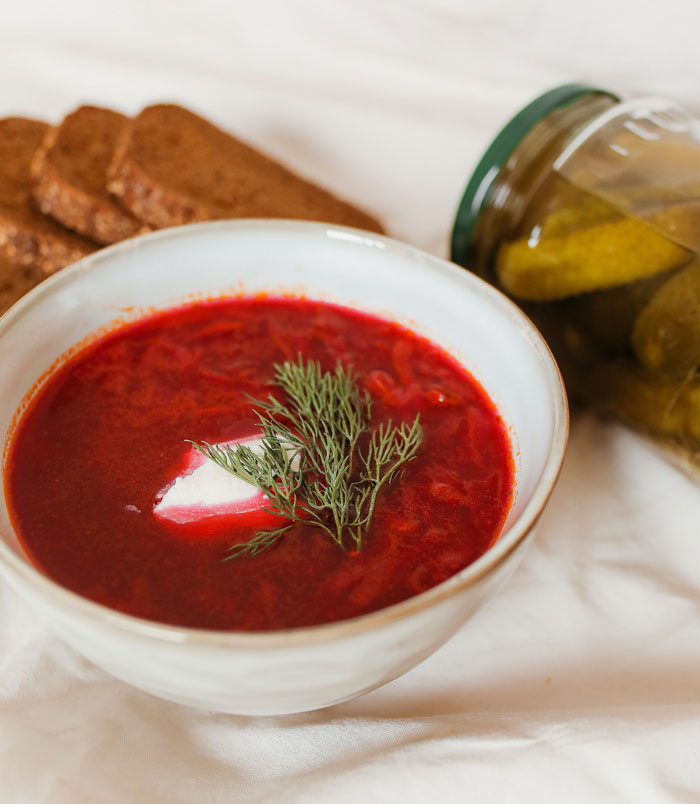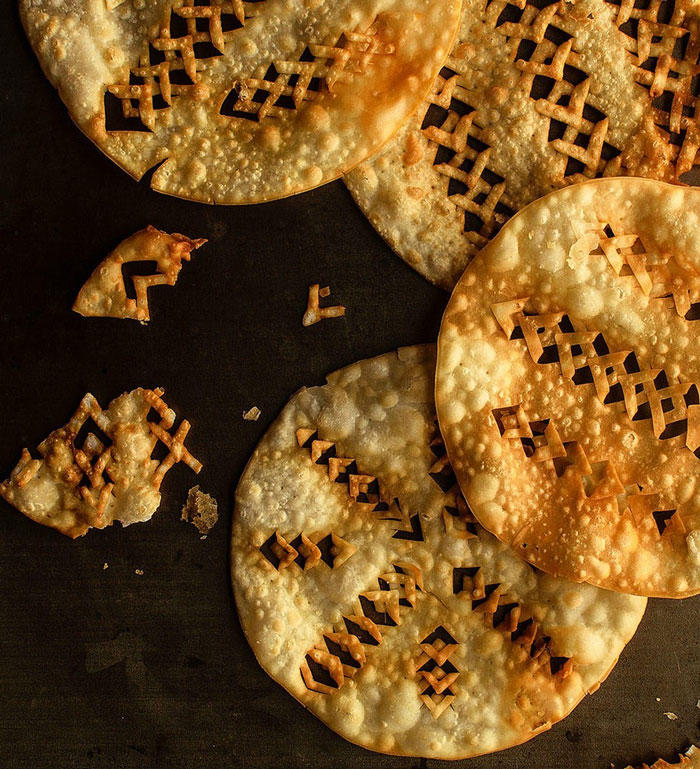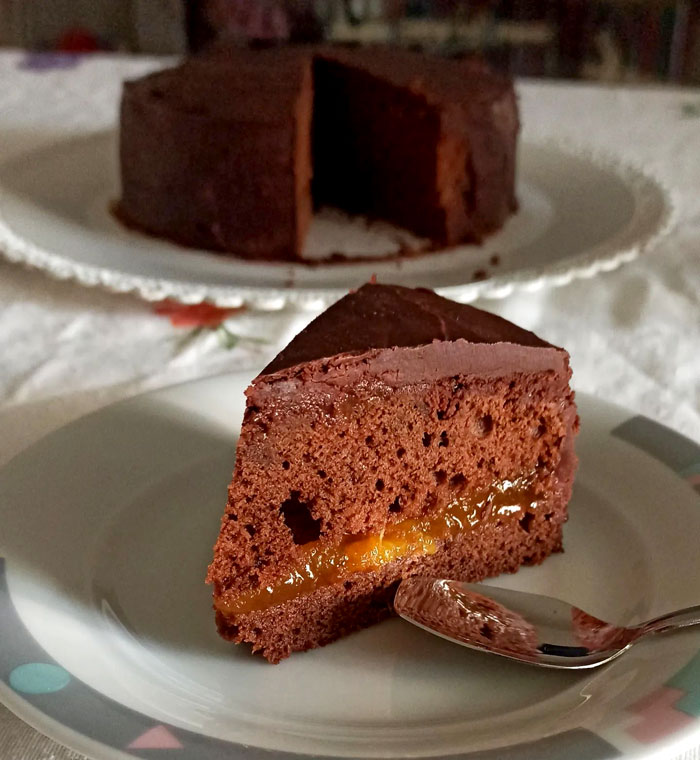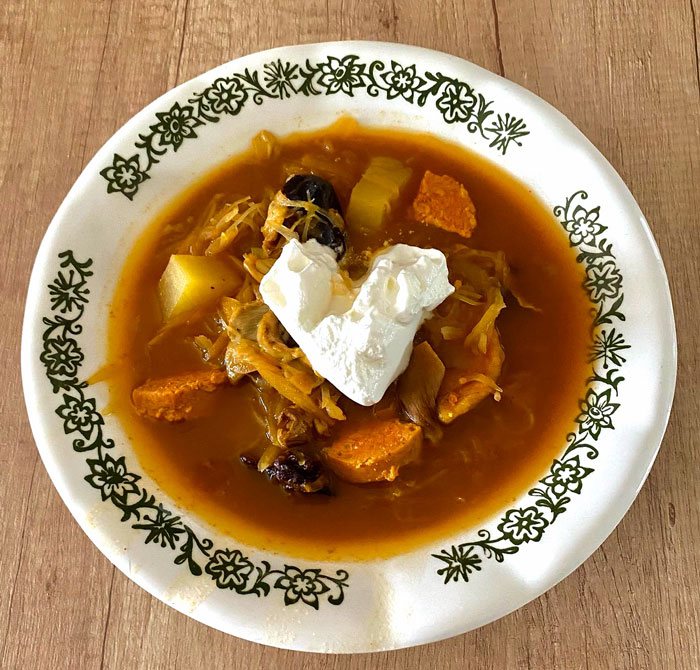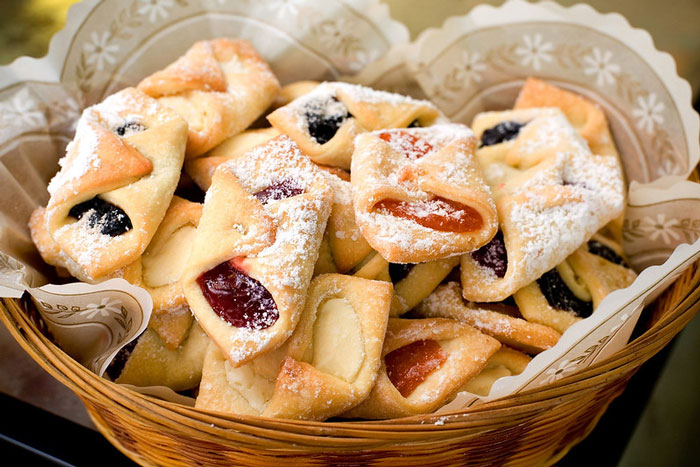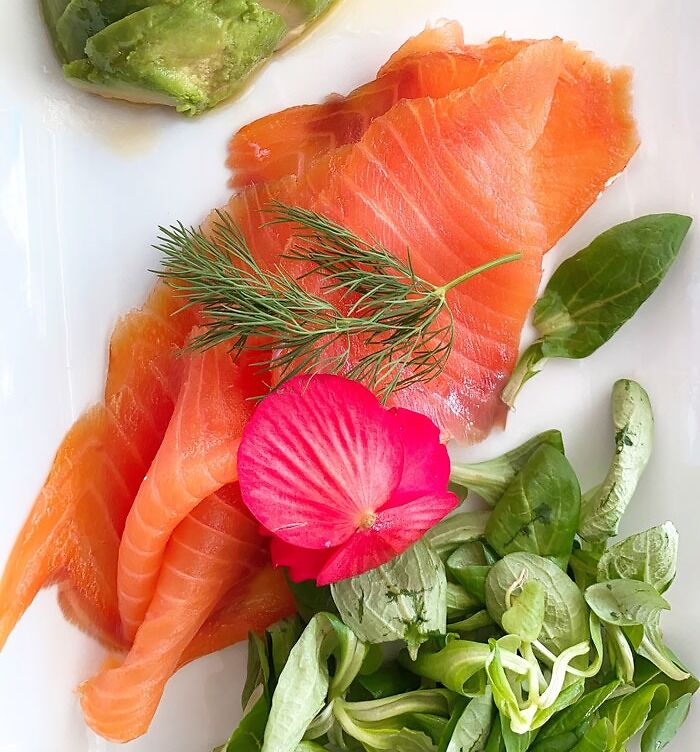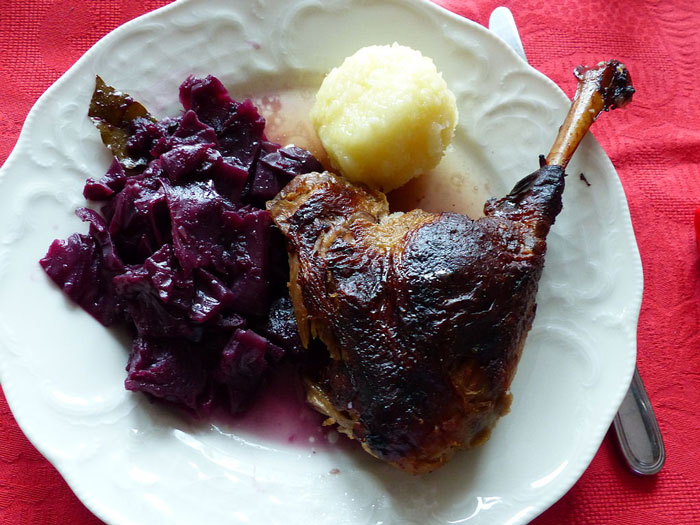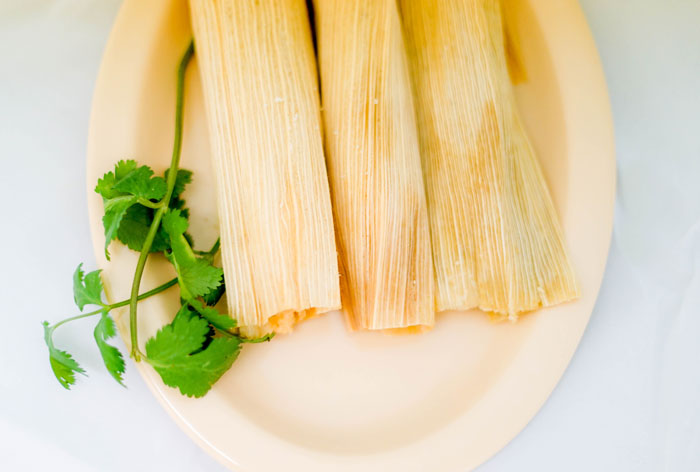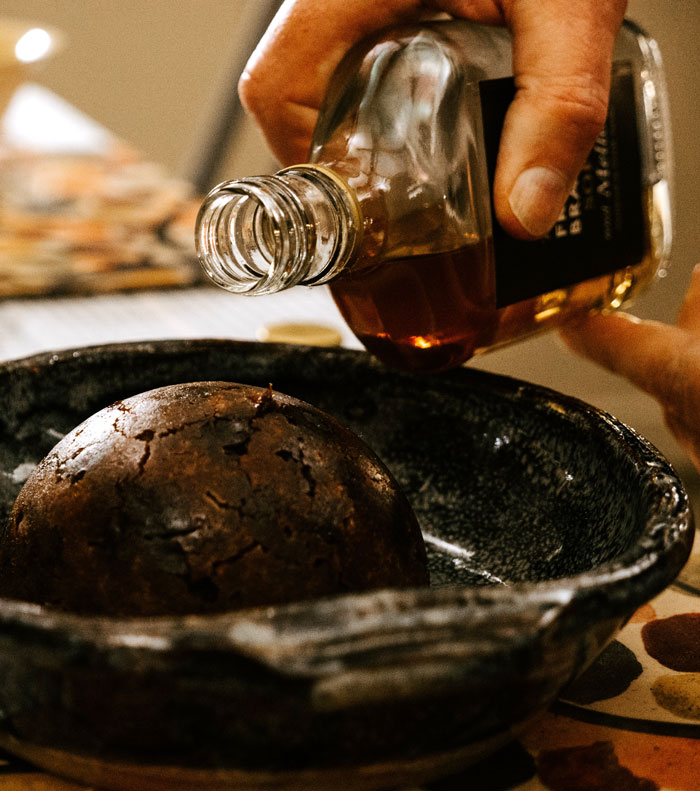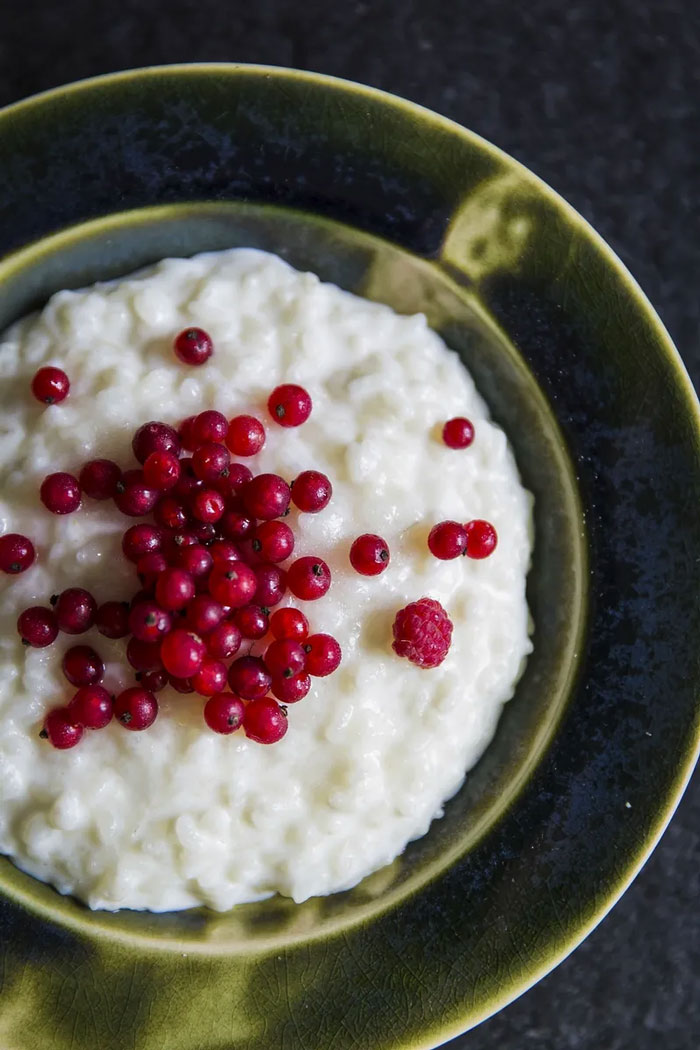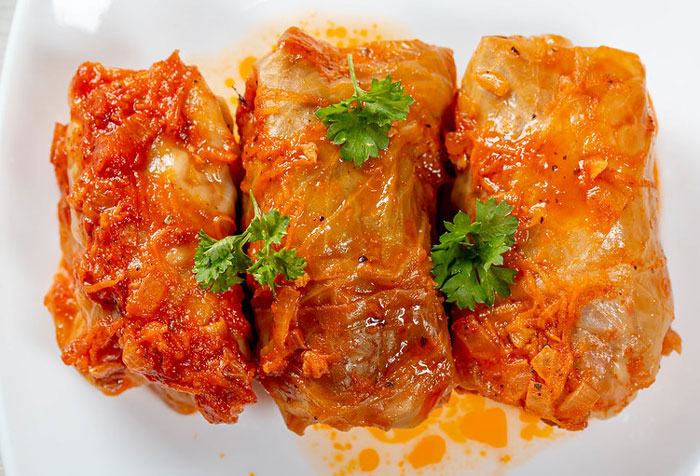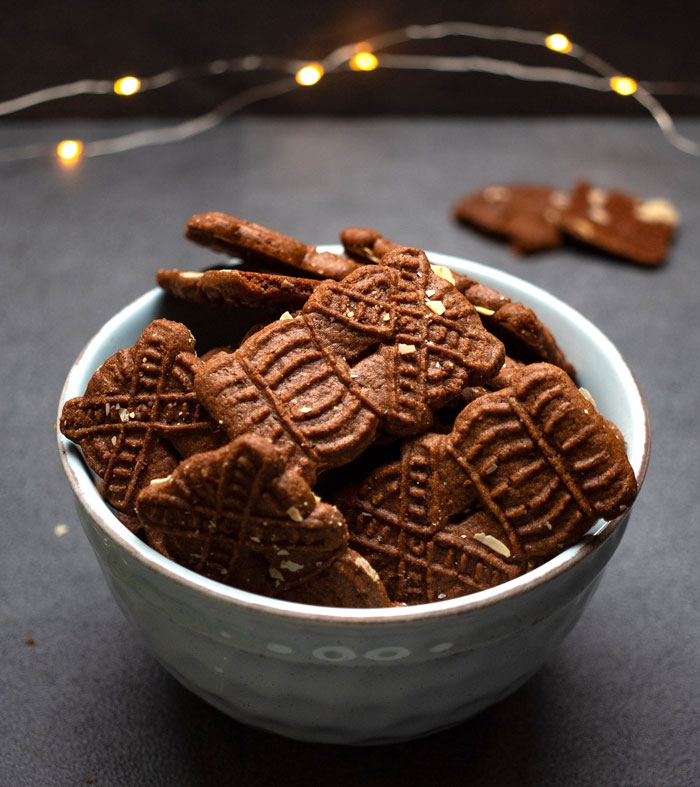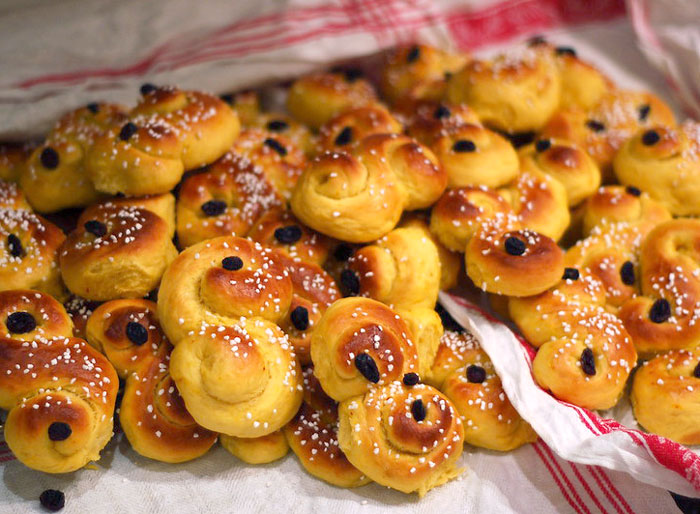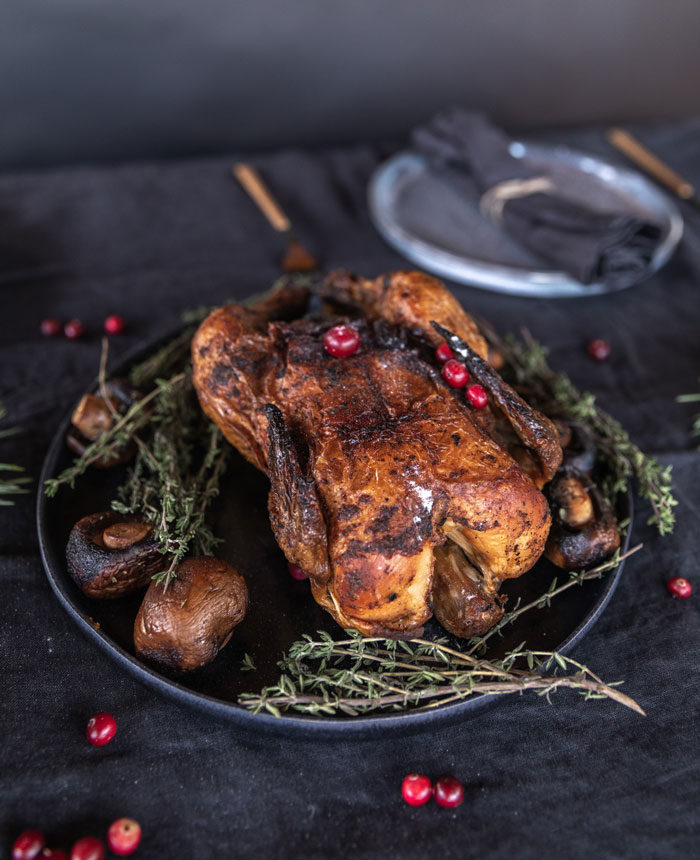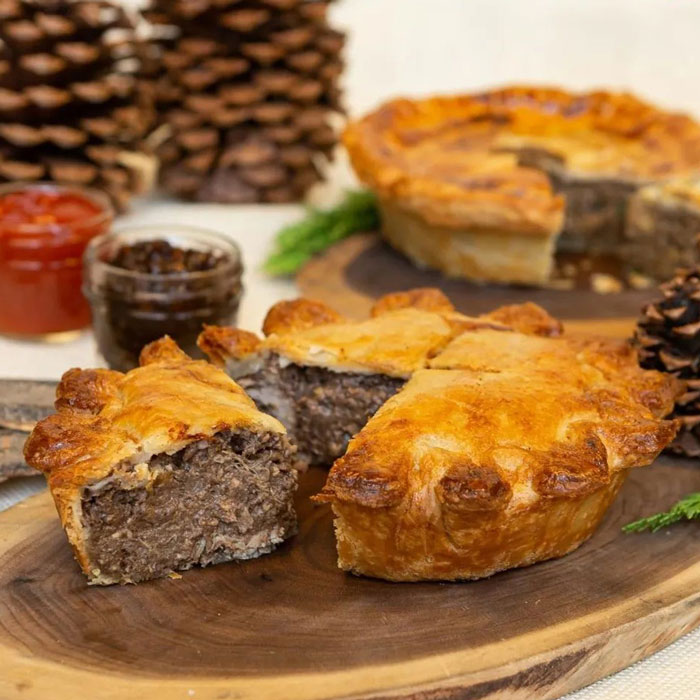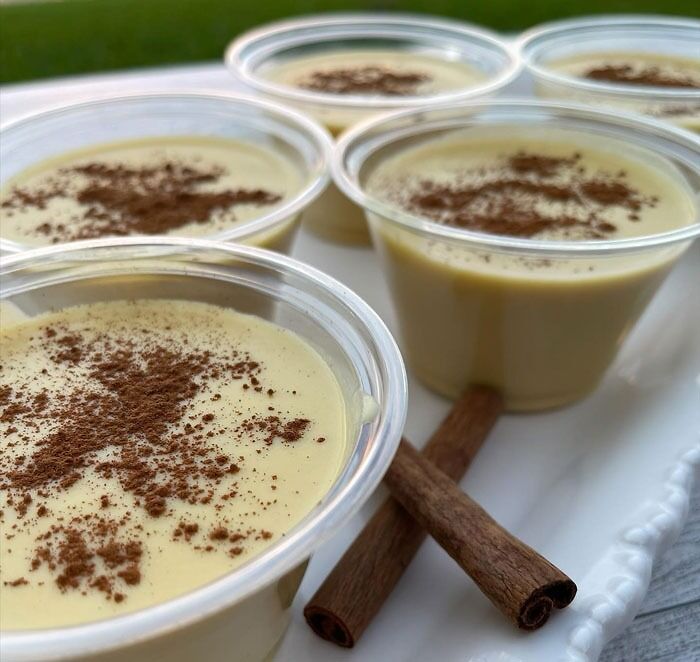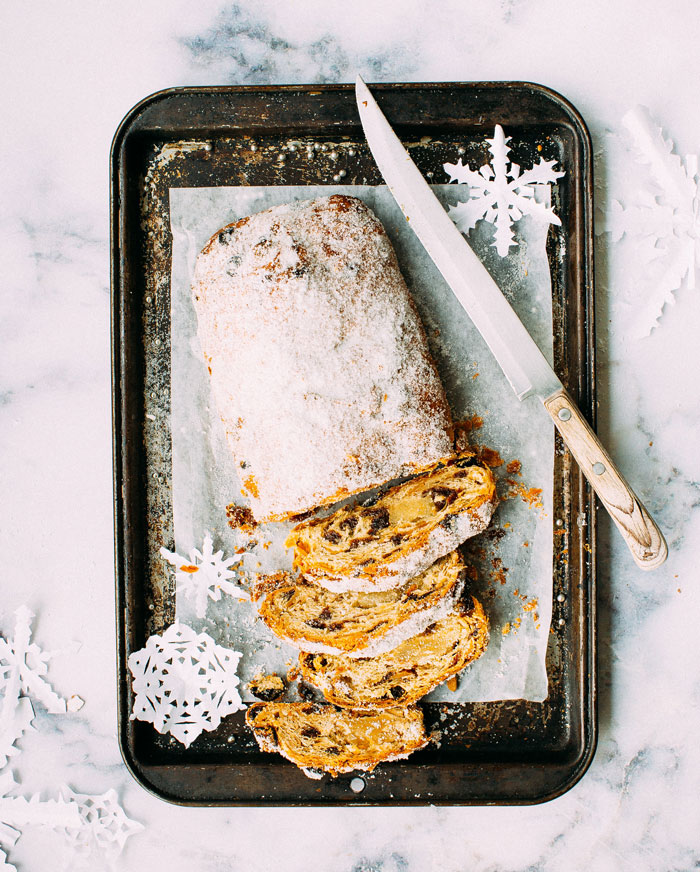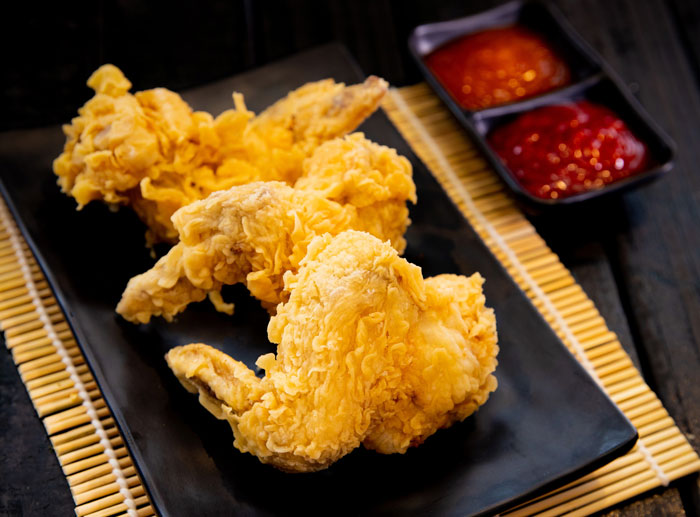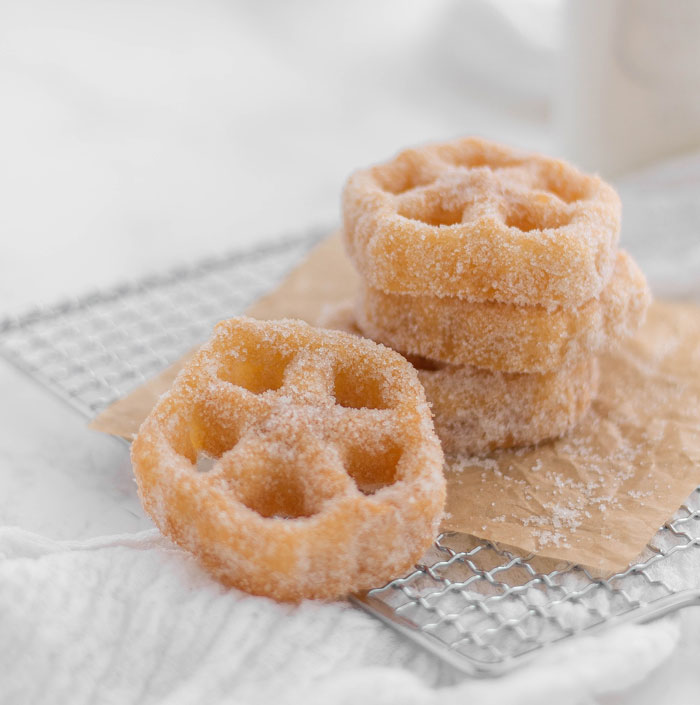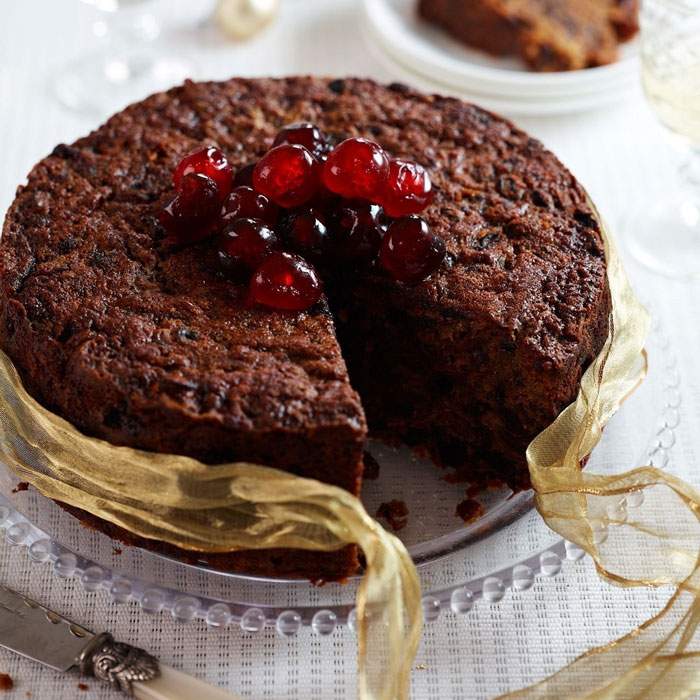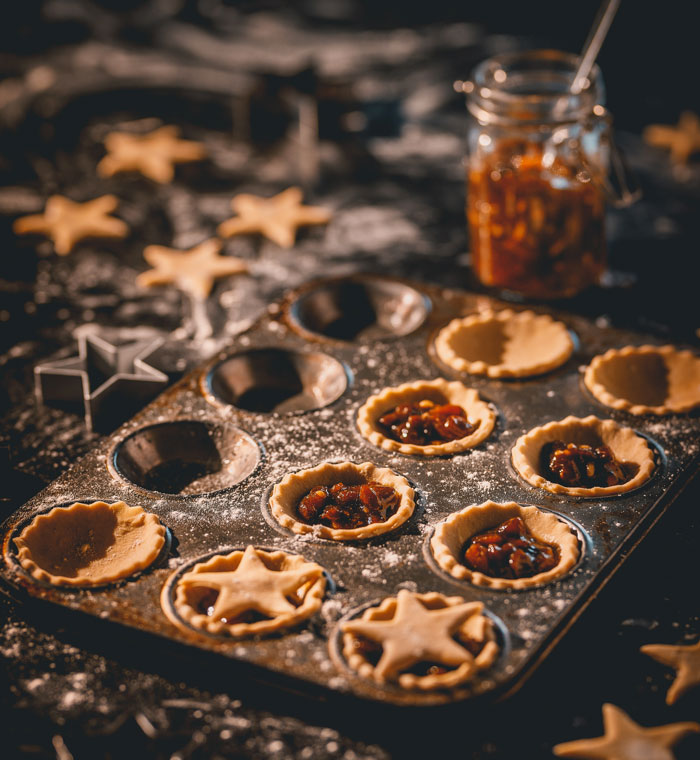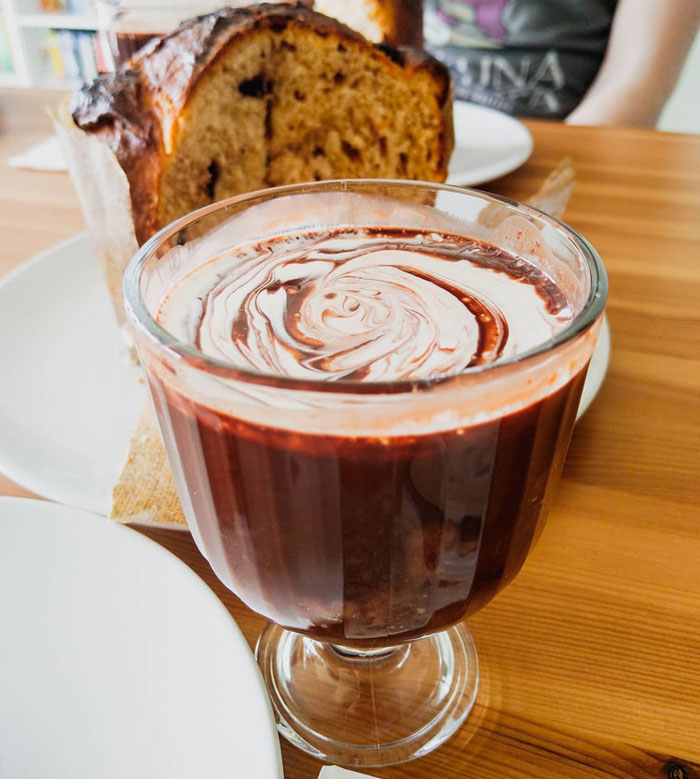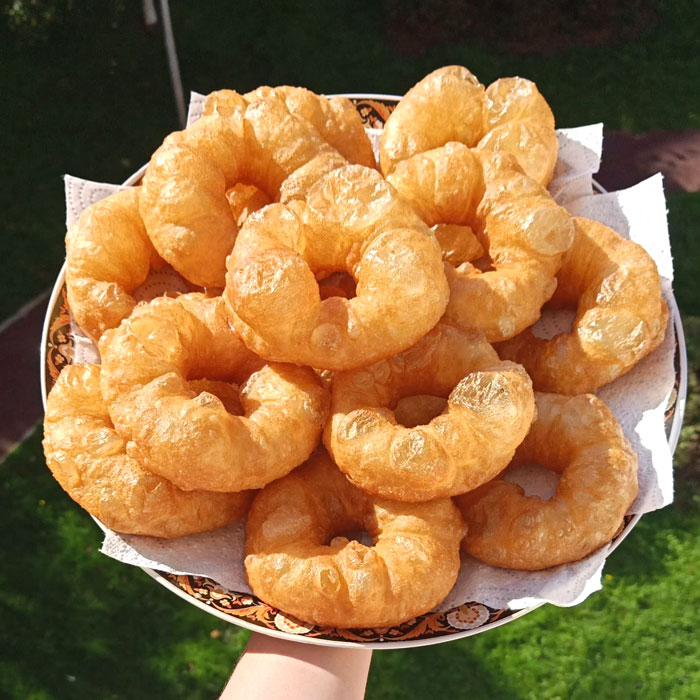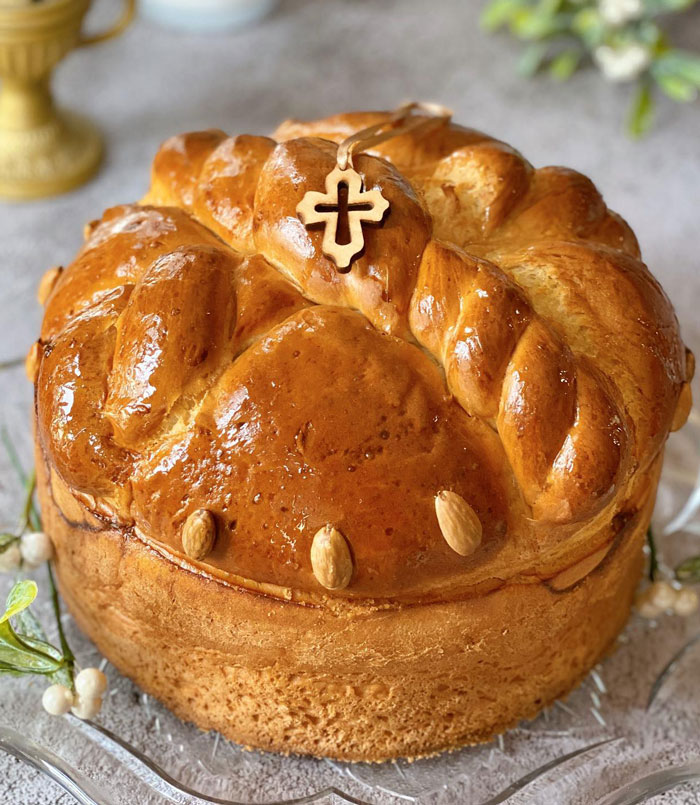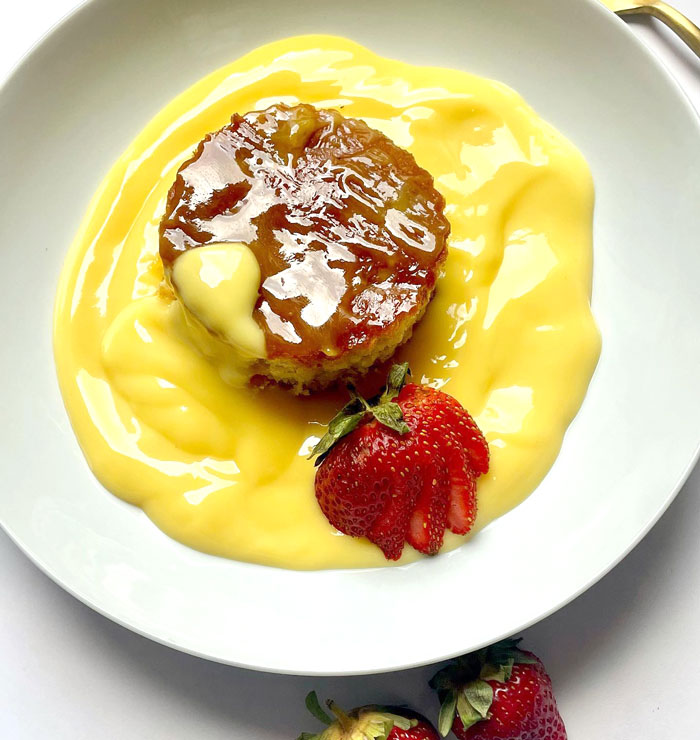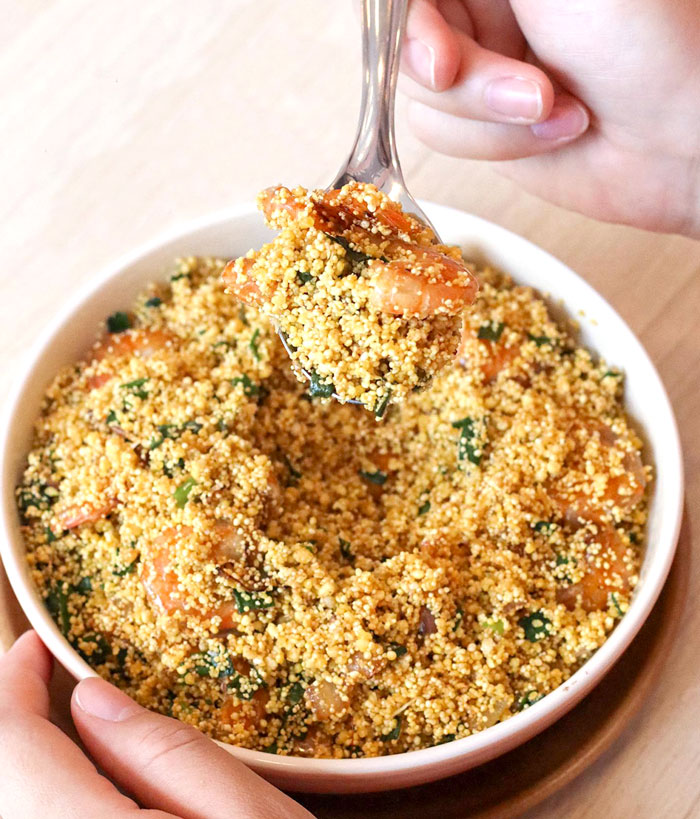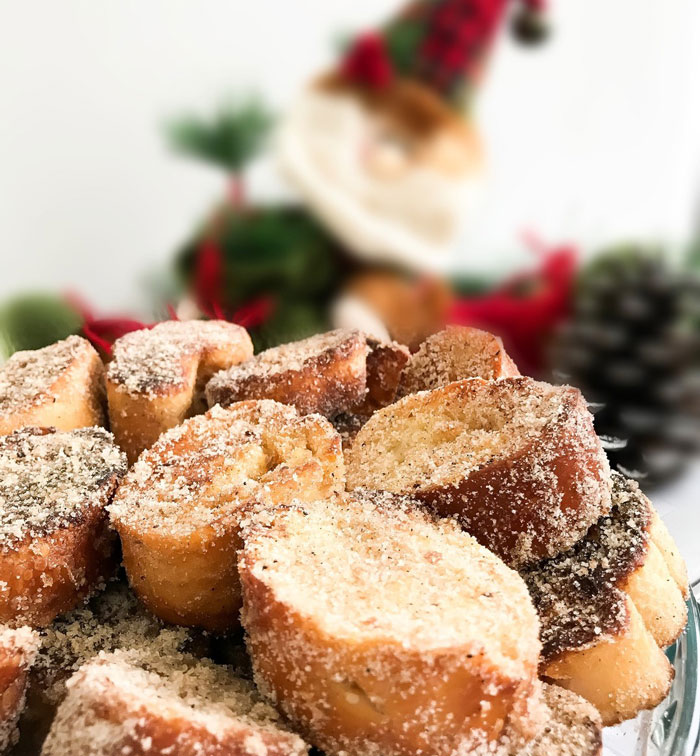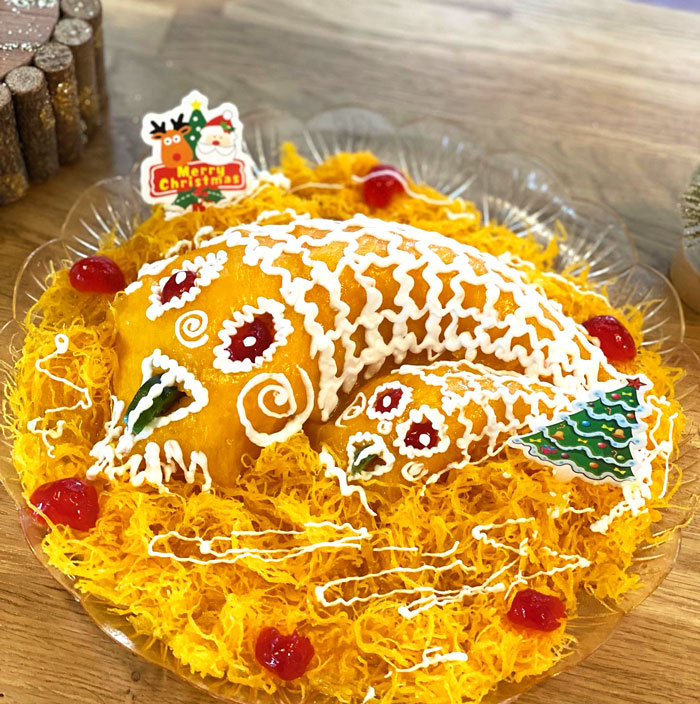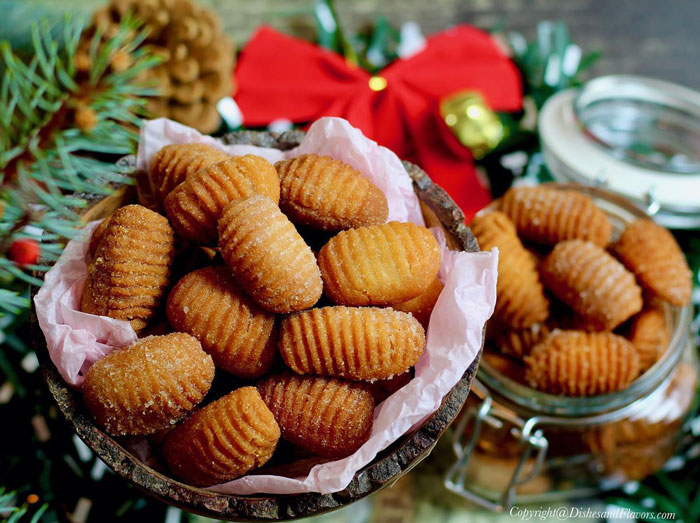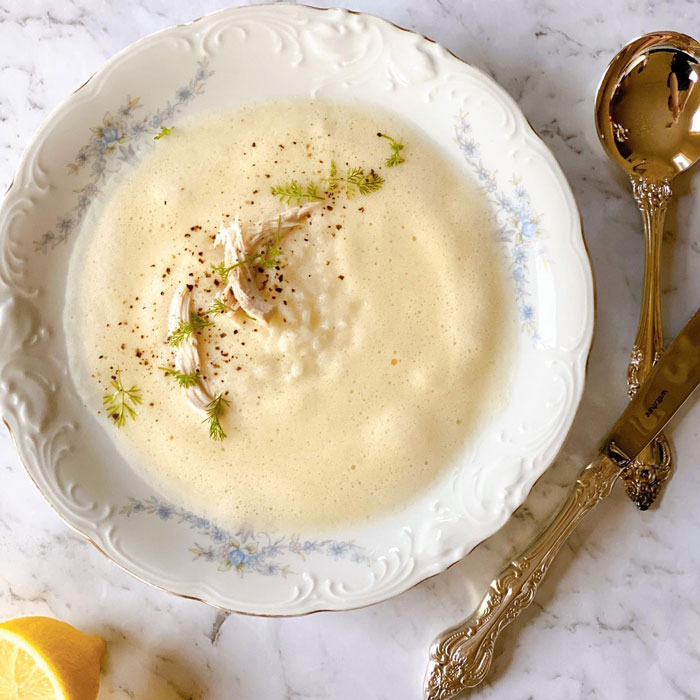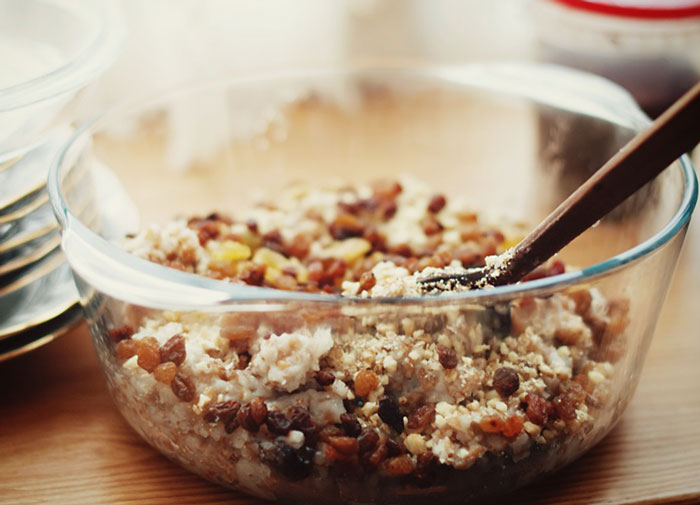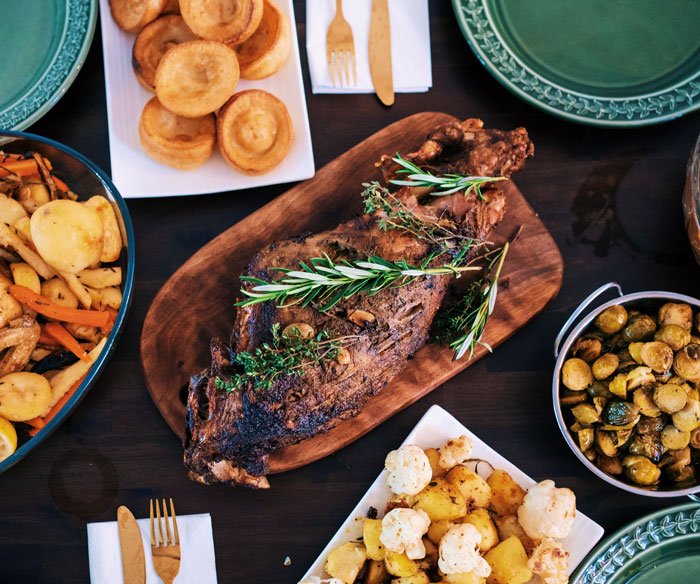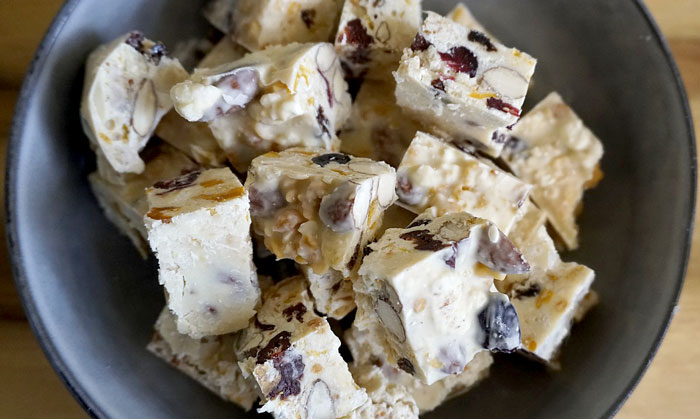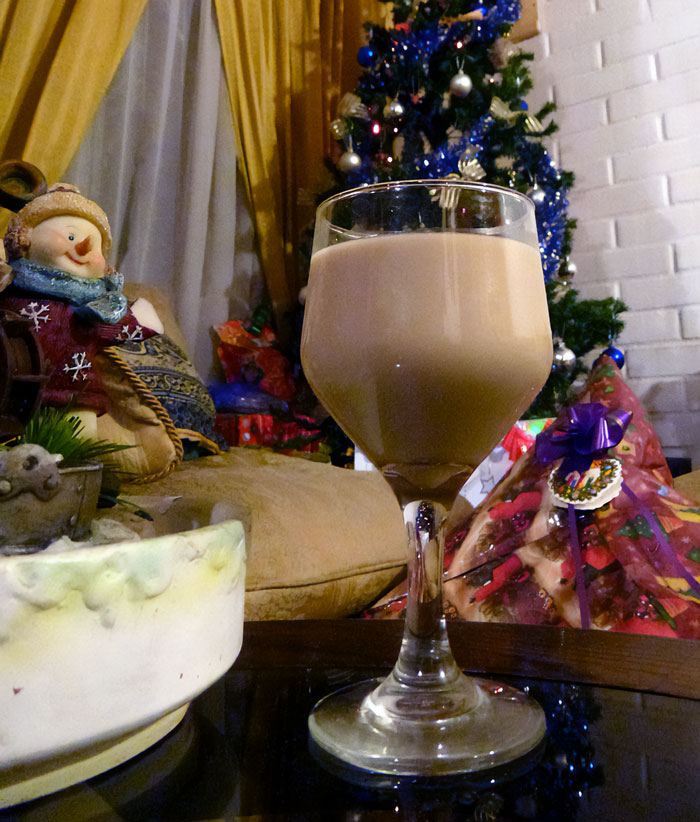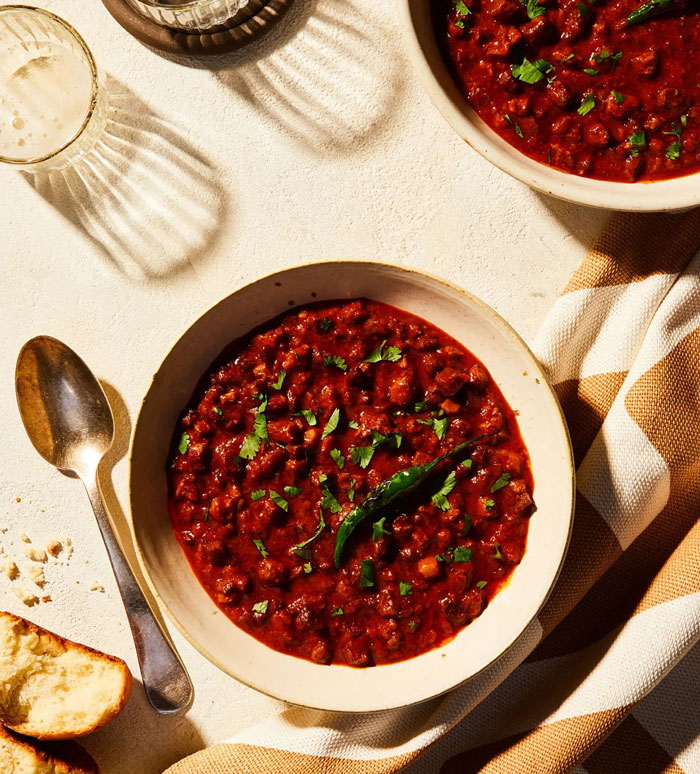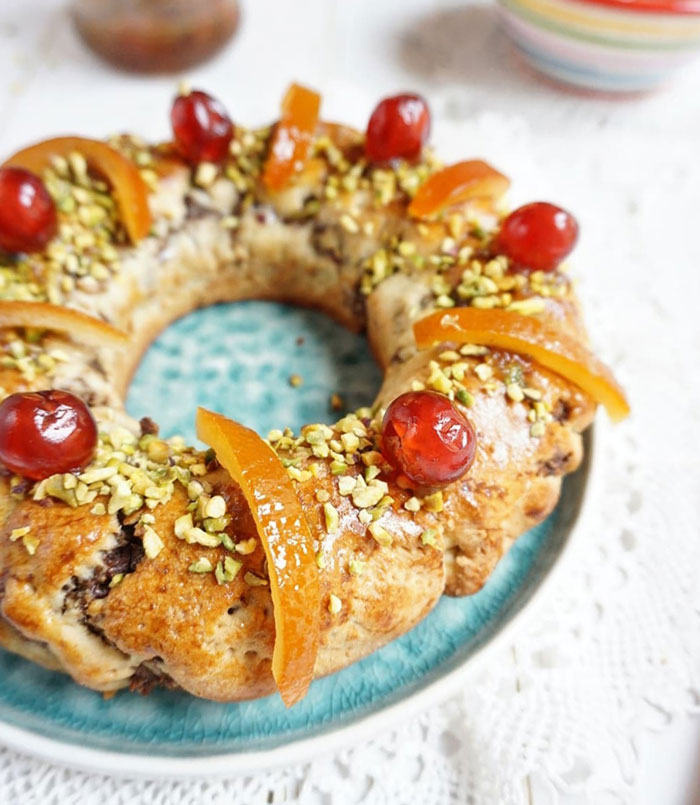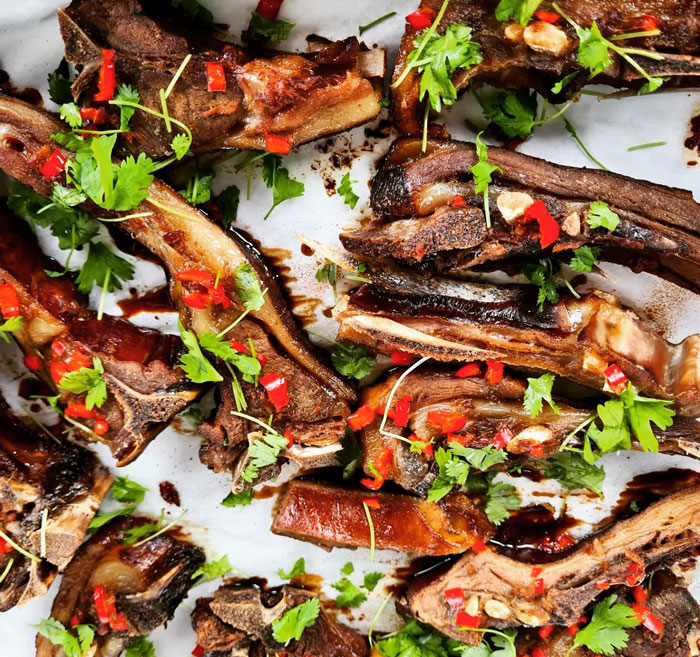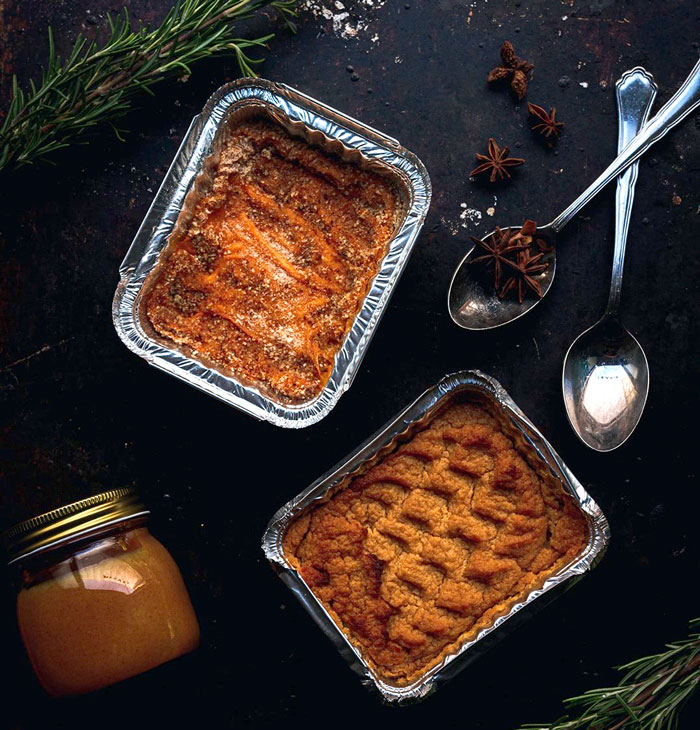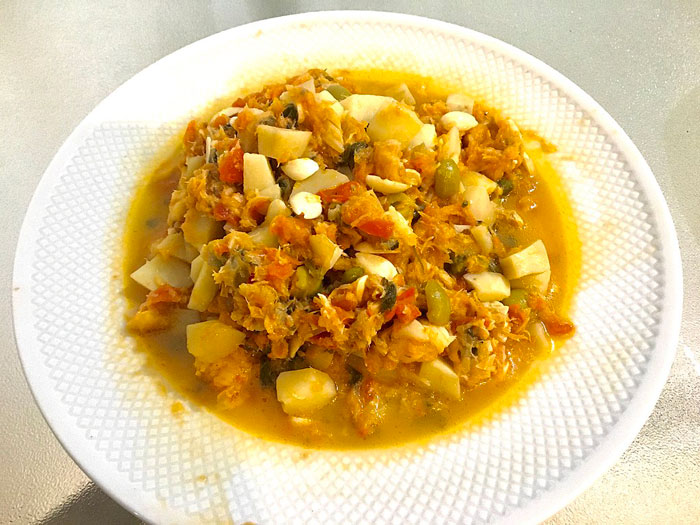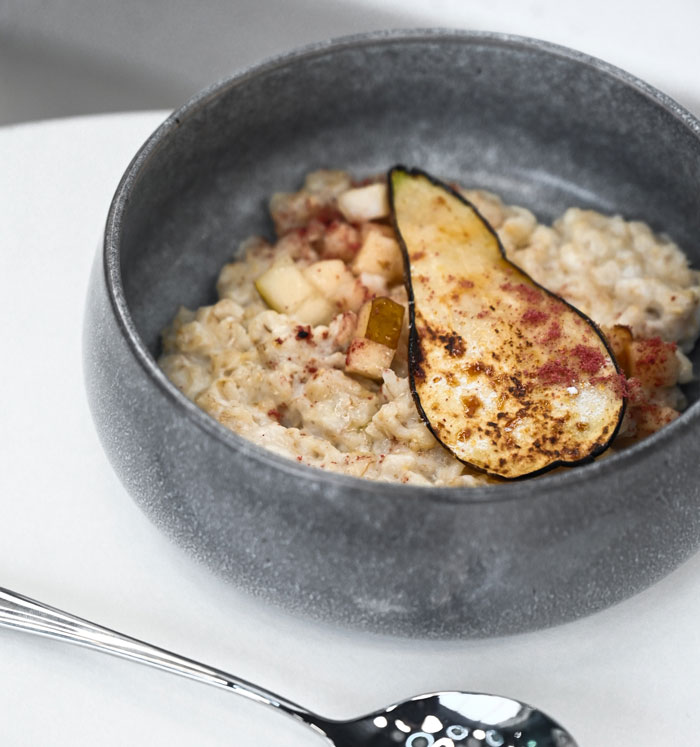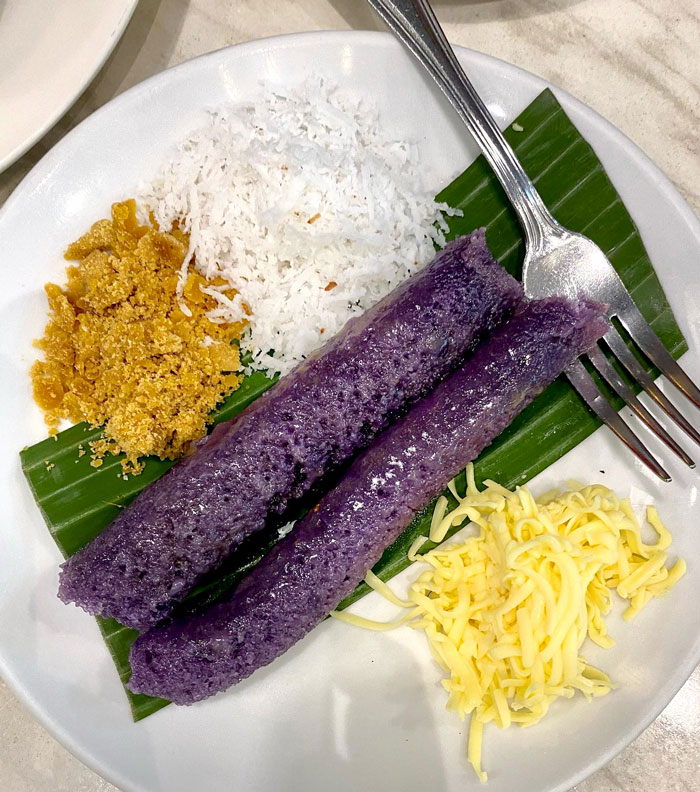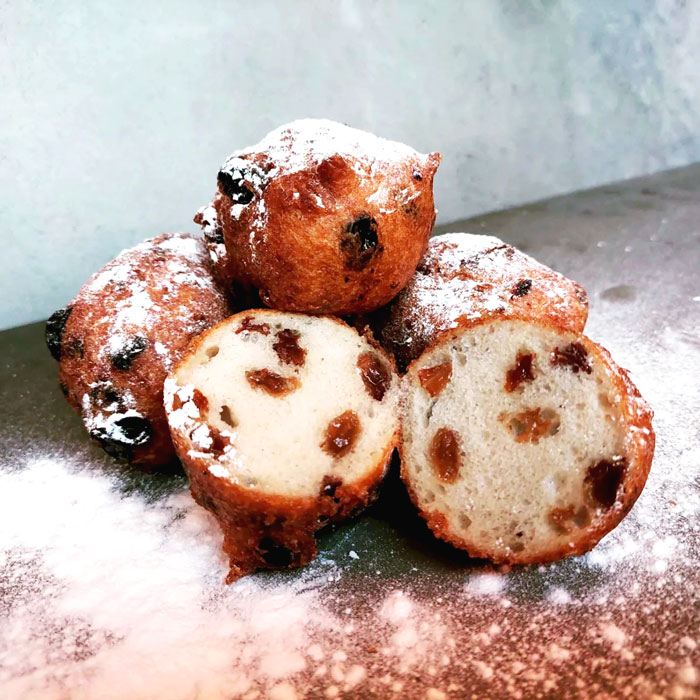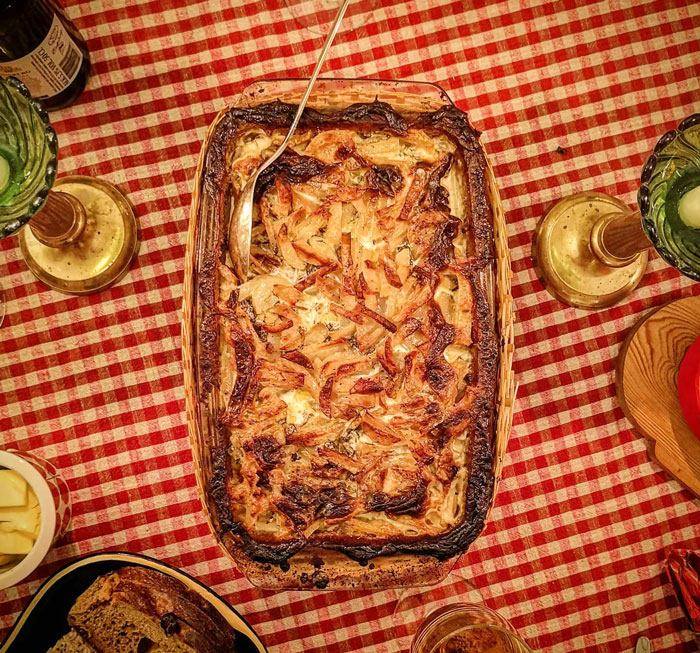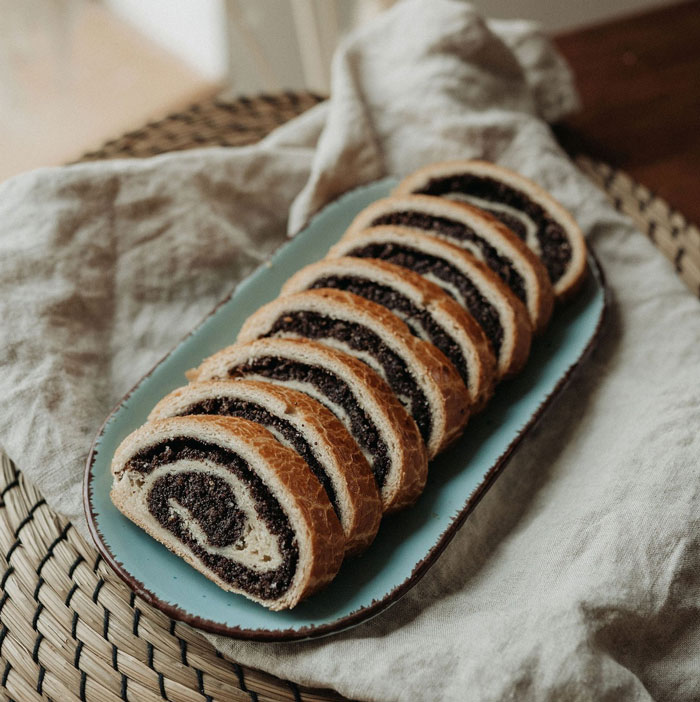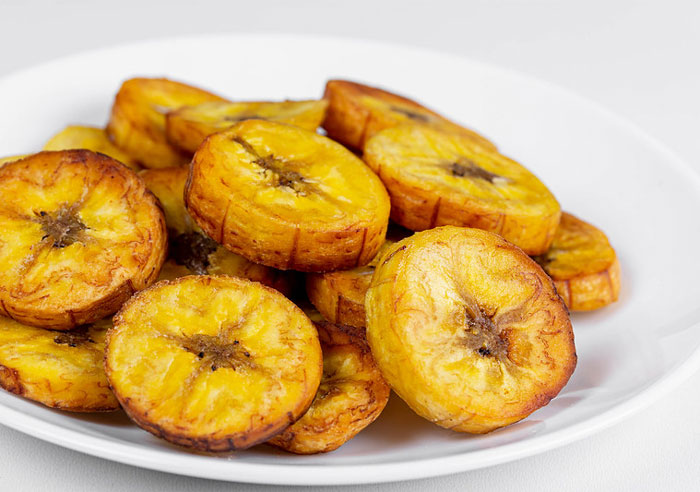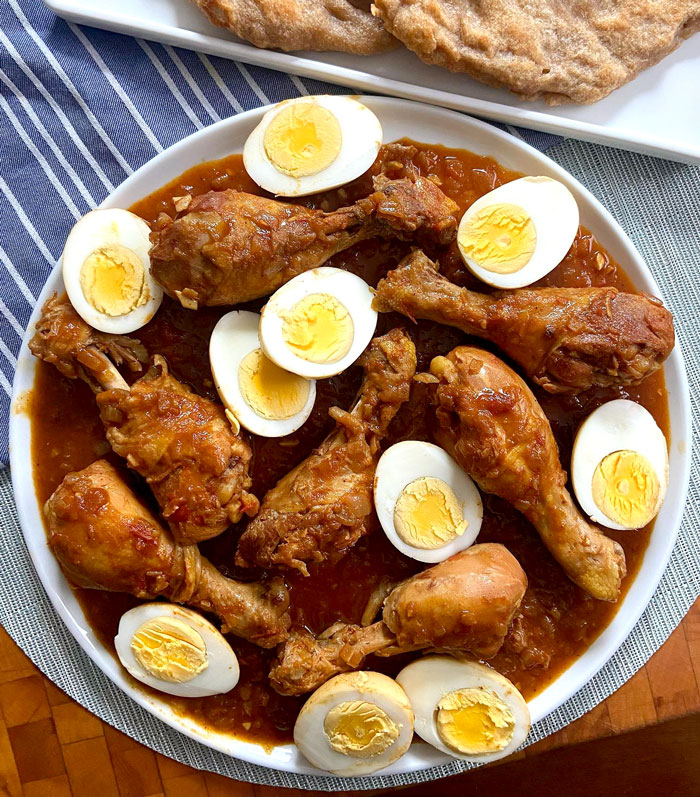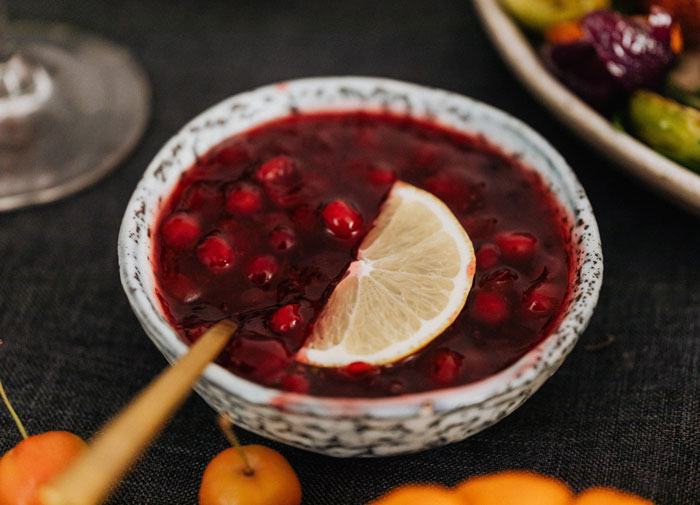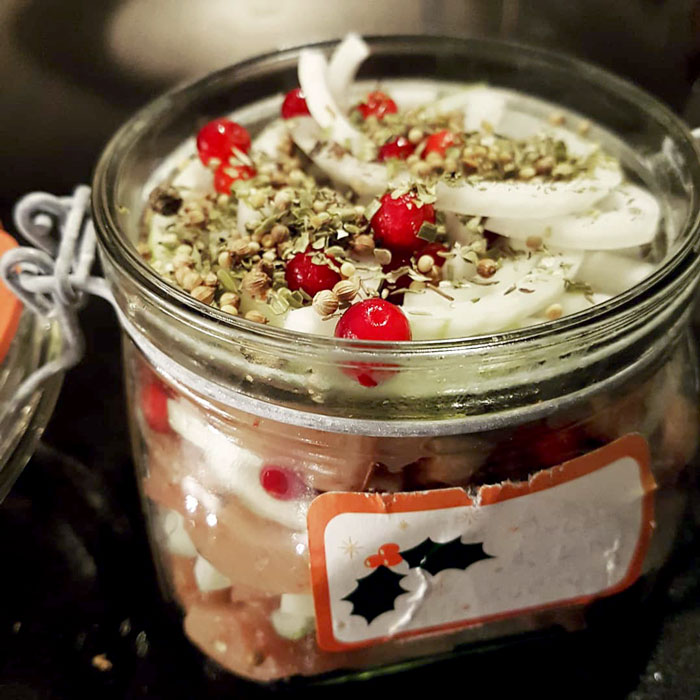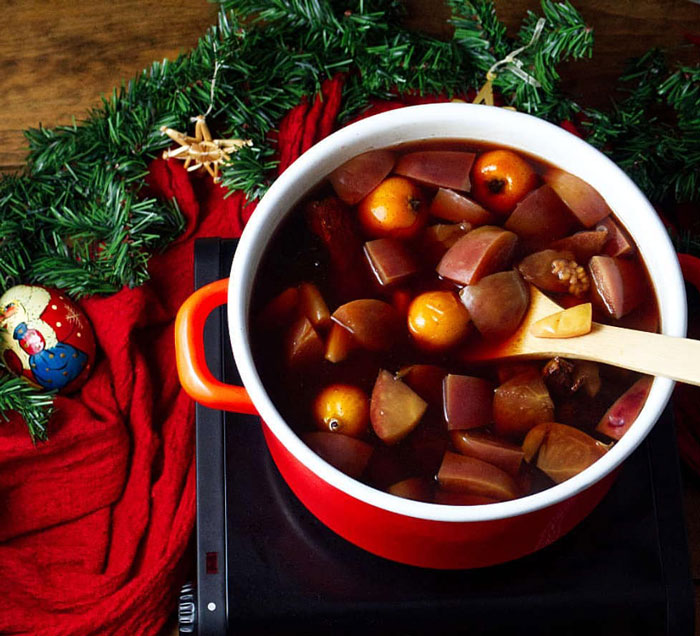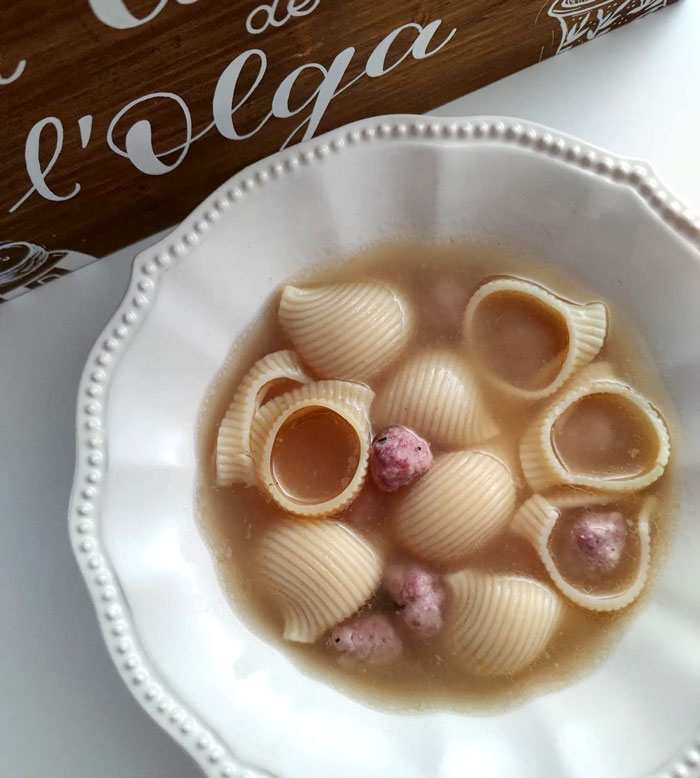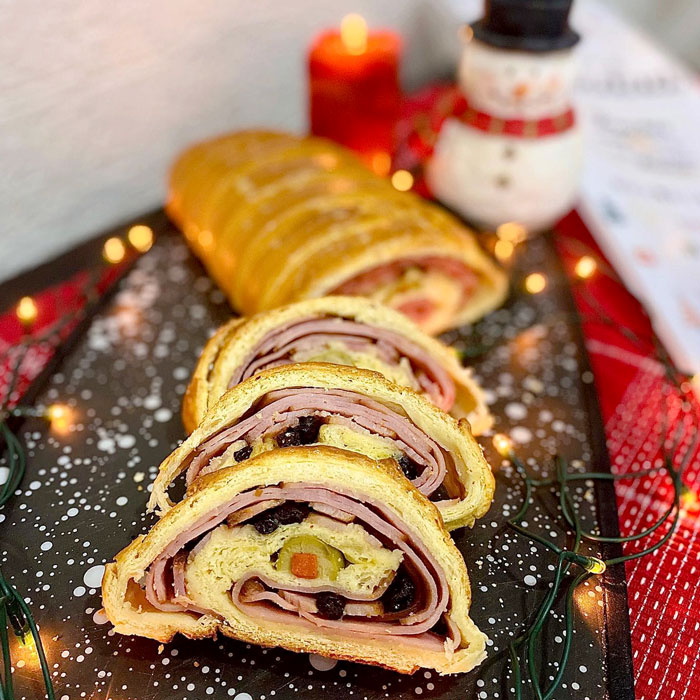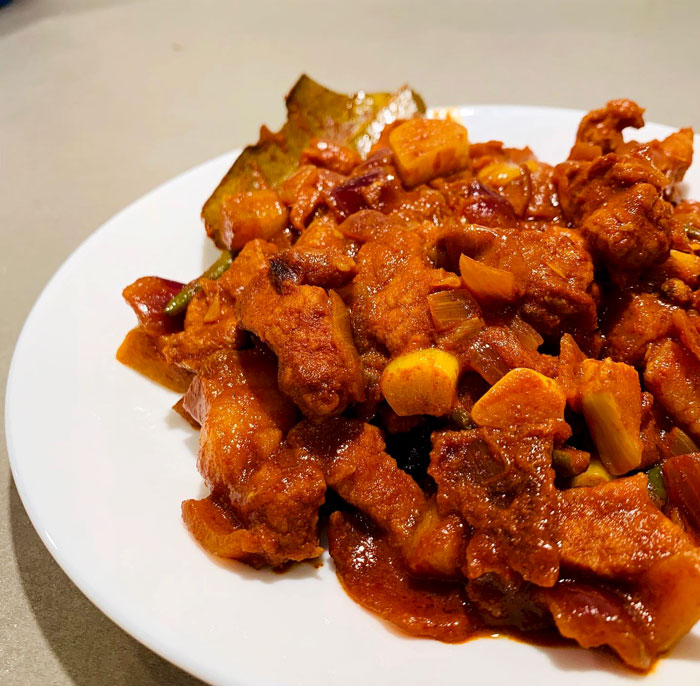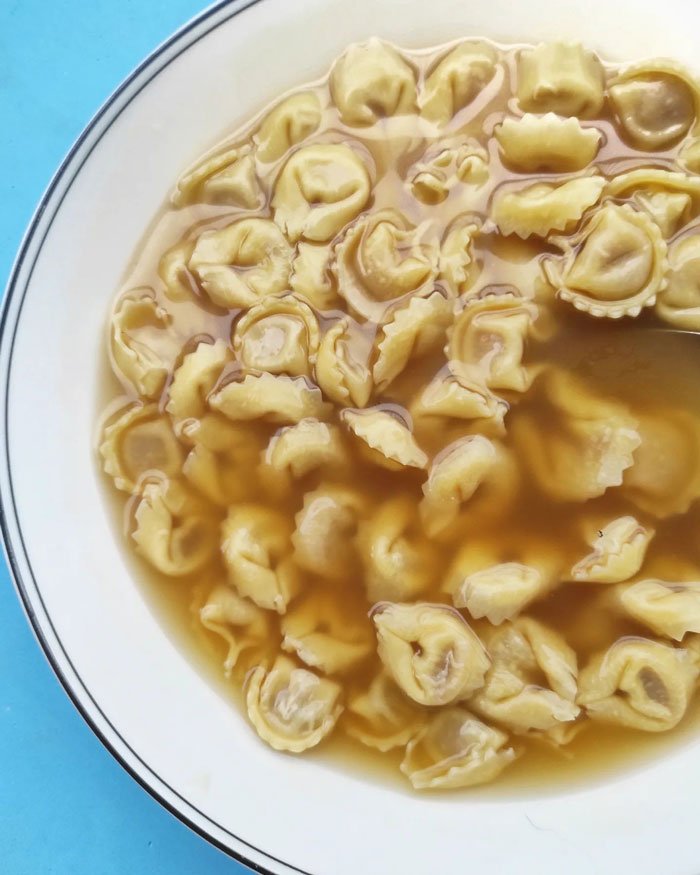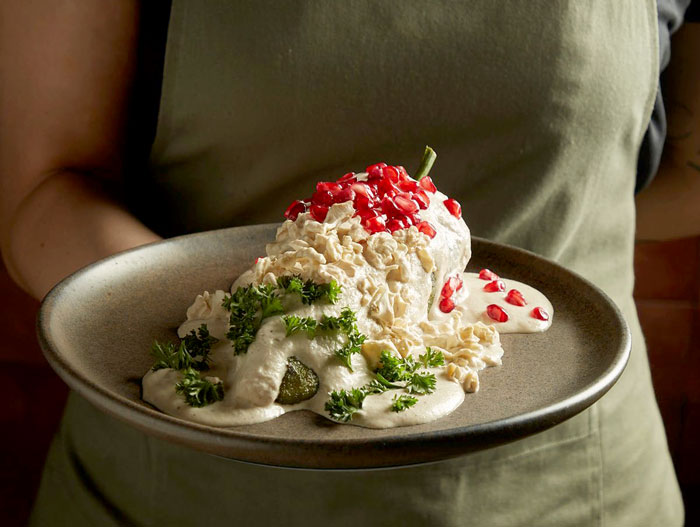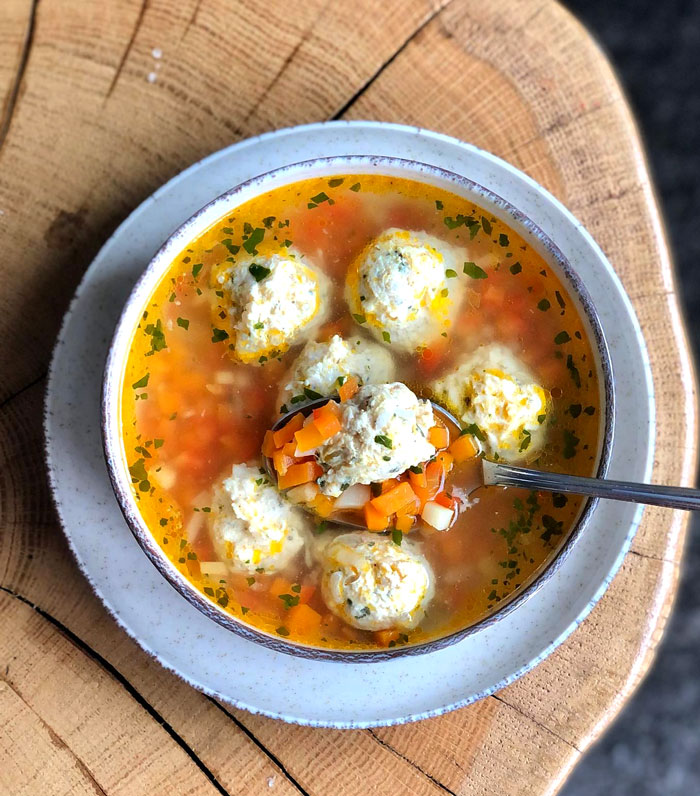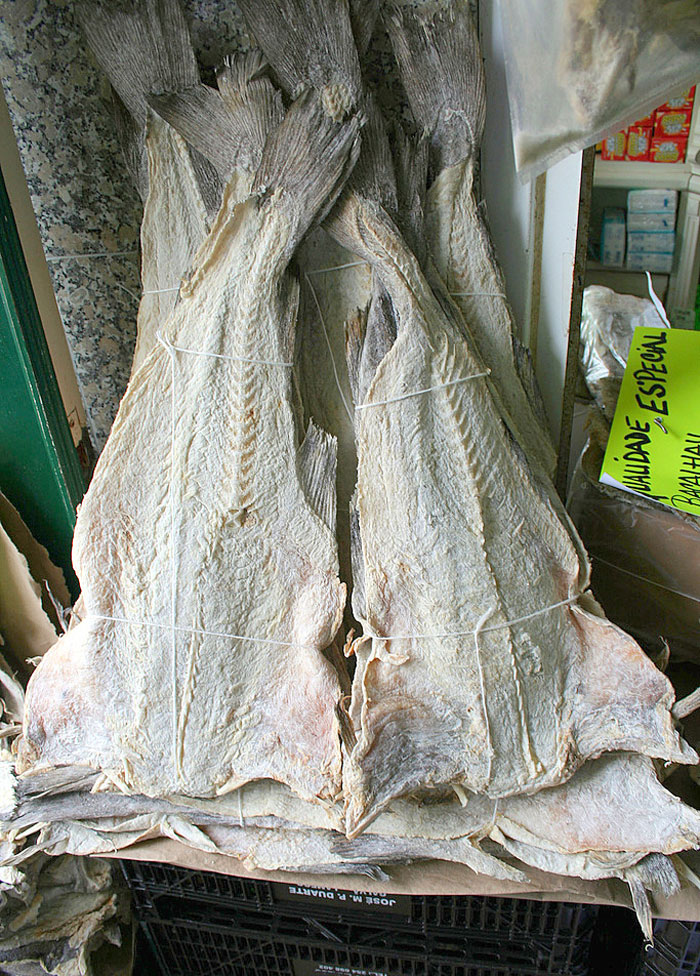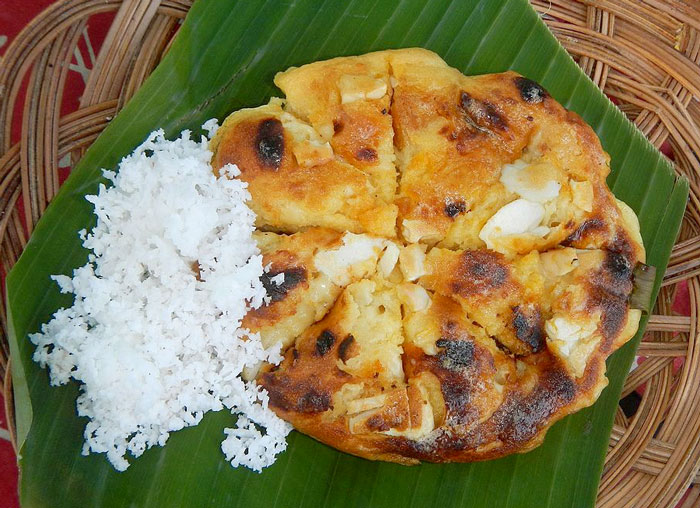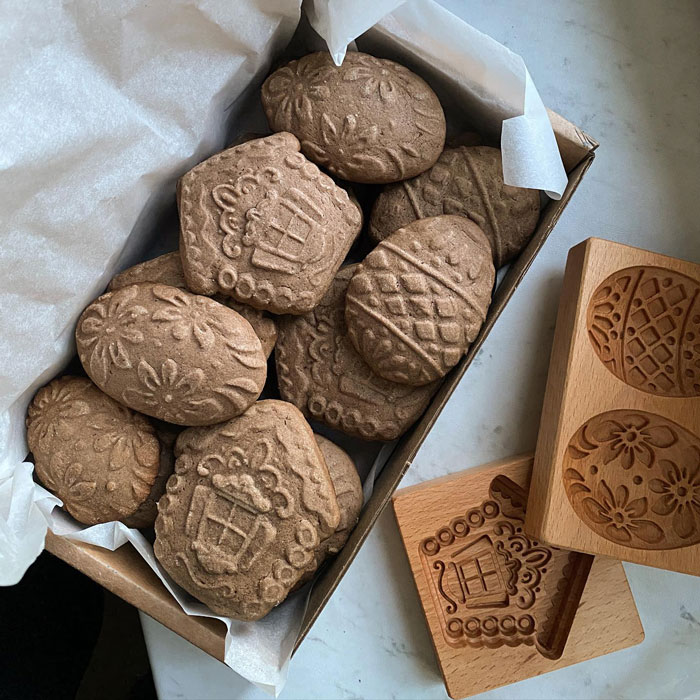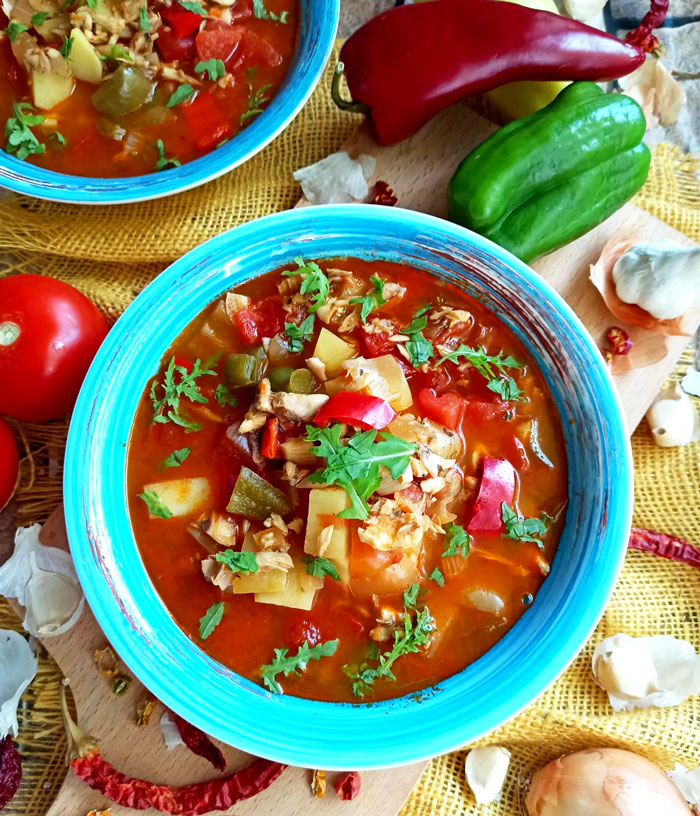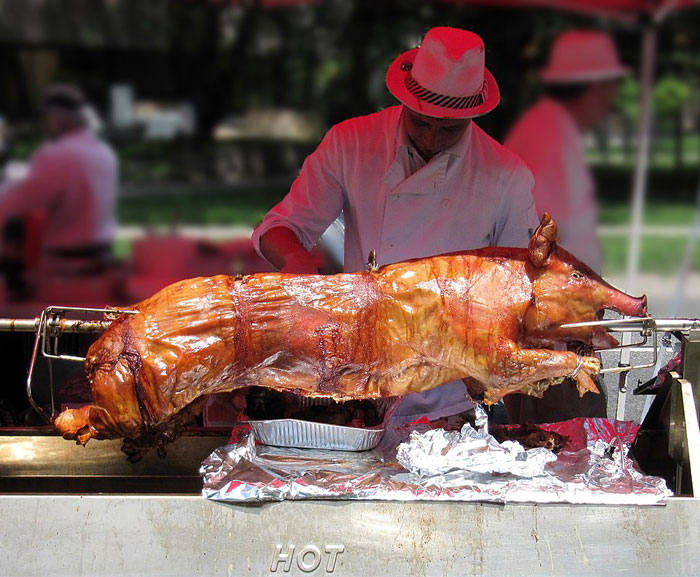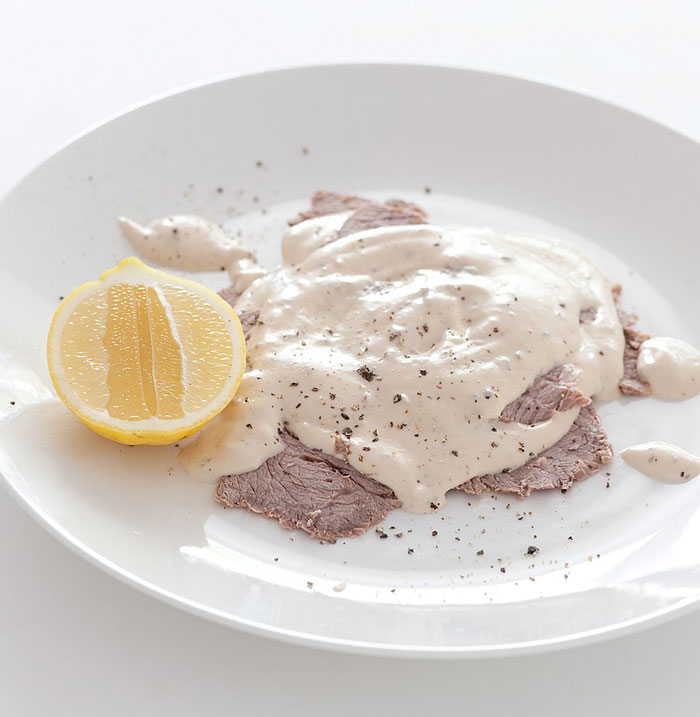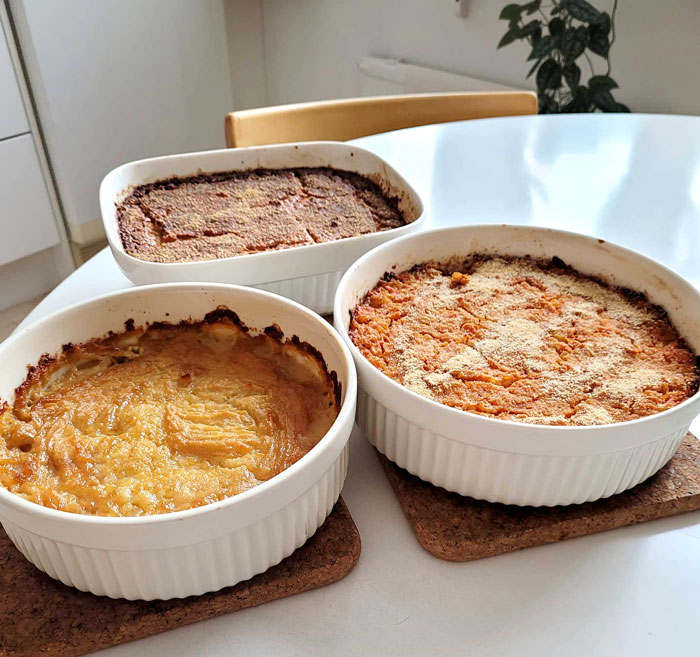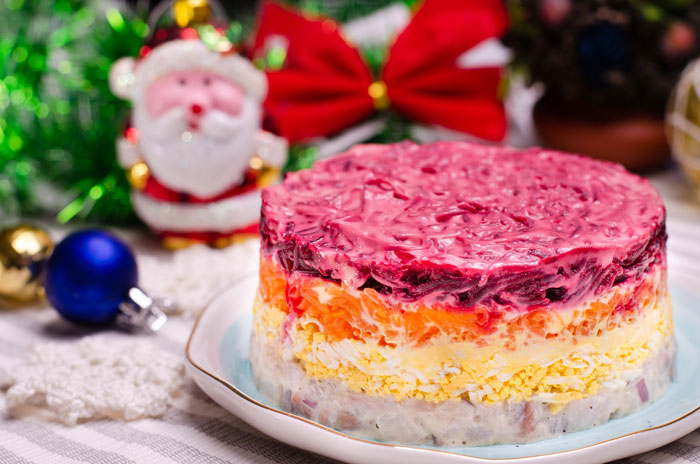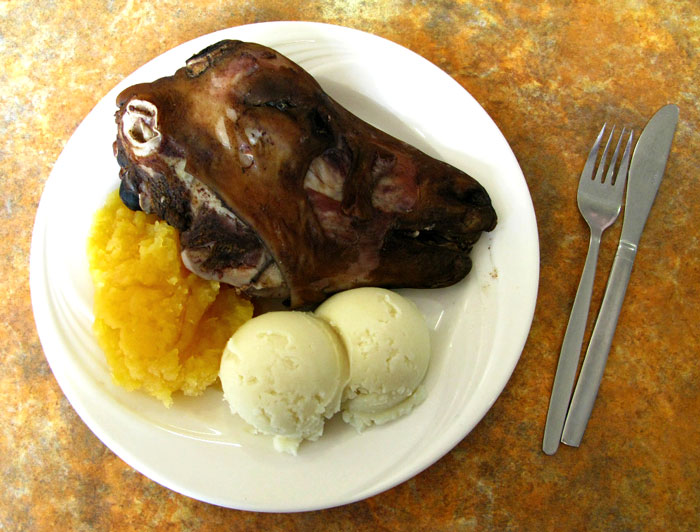Depending on where one grew up, Christmas traditions vary across the globe. However, one holiday practice that unites all practicing nations together is serving traditional Christmas foods and enjoying delicious dishes at a Christmas table. Cultural food is an inevitable part of any festivity; hence, the many Christmas food traditions are as old as the Christmas celebration itself. Whether celebrated at the North Pole or in the tropics, every part of the world that celebrates Christmas has something uniquely theirs, rooted in their culture — traditional Christmas food.
Interestingly, while the way the holiday is celebrated and also the name of it differ by country, there's a solid theme that follows when it comes to traditional Christmas food. Although not exclusively, Christmas is associated with the cold winter months. Hence no wonder classic Christmas food for many consists of hot, rich dishes. Also, let's not forget that Christmas is essentially a birthday celebration, and what is essential to any birthday party? A cake. Thus sweets and treats are often included in the many traditional Christmas dishes.
Below, we've compiled an ultimate (yet not final) traditional Christmas food list from nations all across the globe. What are common Christmas foods where you live? Have you ever tried any of these cultural Christmas foods on the list? How did you find it? Let us know! Also, upvote the Christmas dishes you would be willing to try or make if you had the chance!
This post may include affiliate links.
Kūčiukai, A Traditional Lithuanian Christmas Snack
Kūčiukai, a traditional Lithuanian dish, is eaten during Kūčios, the country’s traditional Christmas Eve dinner. They are tiny, mildly sweet pastries made with poppy seeds and leavened dough. They are typically eaten dry but can also be served soaked in poppy milk or with cranberry kissel. They were initially created as tiny loaves of bread offered to the spirits.
I'd love to try. Looks and sounds like something I would enjoy very much
Lebkuchen, A Traditional Christmas Dessert In Germany
Lebkuchen were first baked at monastery bakeries in Germany in the 14th century by Catholic monks. These pastries contained honey, a variety of spices, and nuts. These ingredients were highly valued for their healing properties and symbolic religious meaning. This traditional German treat is available everywhere, but the Christmas markets are where you’ll find it most often.
Lebkuchen? I natively speak German, and this is not Lebkuchen. Gingerbread is Lebkuchen, these are Nougatringe.
Kurisumasu Keki, A Traditional Japanese Christmas Cake
Light sponge cake coated in a layer of whipped cream and decorated with ripe strawberries is known as kurisumasu keki in Japan. It’s a delicious dessert to serve on Christmas.
Joulutorttu, A Traditional Christmas Dessert In Finland
Traditional puff pastries called joulutorttu come in the form of windmills or stars. These Christmas tarts are often made with a ricotta pastry and a prune jam filling. There is sometimes a cinnamon-infused apple marmalade inside. Joulutorttu has an incredible lightness from the ricotta without being overly creamy or heavy. Additionally, although prune jam might not sound very appetizing, it gives the cookie a rich sweetness that is the ideal complement to the flaky pastry. Powdered sugar may be used to decorate the dessert.
You cannot convince me that these were not created by baking ninjas to use in assasinations
La Bûche De Noël, A Traditional French Christmas Dessert
La Bûche de Nol is a dessert that resembles the Yule Log, a wood log traditionally brought inside, coated in wine, and then set on fire on Christmas Eve. When the tradition began to fade in the 1940s, this dessert stood up to the occasion. La Bûche de Nol resembles a real log and is often made from sponge cake and chocolate buttercream.
If it's called Bûche, then it must be very soft and fluffy and sweet, am I right @Shyla?
Melomakarona (Μελομακάρονα), A Sweet Greek Christmas Tradition
Melomakarona are sweet orange-zest cookies covered in honey and garnished with walnuts. They are often compared to baklava in flavor. Melomakarona are baked, then soaked in a honey-sugar water mixture before being sprinkled with walnuts.
Feuerzangenbowle, A Traditional German Christmas Drink
Feuerzangenbowle, which translates to “fire tong punch,” is not your typical mulled wine. The beverage begins as a typical glühwein (warm red wine infused with orange peel, cinnamon, and cardamom) and is offered at German Christmas markets all throughout December. The wine is then flavored with drops of alcoholic and caramelized sugar after a pzuckerhut, a sugar cone drenched in rum, is lit on fire over it.
Panettone, One Of Italy’s Traditional Christmas Breads
Sweets are a big part of the Christmas season, especially in Italy. Invented by Italians (they know what’s good), one of the most well-known holiday treats is panettone, a sweet cupola-shaped, yeast-leavened bread with candied fruit, chocolate, raisins, and nuts.
Coquito, A Traditional Puerto Rican Christmas Drink
Also known as the Latin relative of eggnog. The base of these two holiday beverages is where they differ: eggnog is made mainly of milk, cream, and eggs, while coquito is made primarily of coconut milk and sweetened condensed milk. Additionally, rum, cinnamon, and sometimes vanilla and nutmeg are added to it. Similar versions, such as ponche de crème in Trinidad and Tobago, ron ponche in Panama, and cola de mono in Chile, can be found in other regions of Latin America and the Caribbean.
Galette Des Rois, A Traditional Christmas Pastry In France
On January 6, Epiphany Day honors the occasion when the Three Kings visited the infant Jesus. Galette des Rois, a flaky cake with a sweet, buttery almond filling that is as much a party food as it is a pastry, is how the French mark the occasion. A “feve” is a little object baked into the batter; whoever finds one in their slice gets to wear a paper crown and assume the role of king or queen for the evening.
Add some happy little kitten prints, just wherever you feel they belong.
Pavlova, A Traditional Christmas Dessert In New Zealand
The pavlova is a meringue-based dessert with a crisp shell and an airy, soft center. The New Zealand pavlova is a traditional Christmas dessert that is sure to satisfy everyone. It is topped with loads of whipped cream and seasonal berries. It is frequently the centerpiece of the table, proudly on display.
Stollen, A Traditional Christmas Dessert In Germany
A Stollen, known in Germany as Christstollen, is a fruit cake that contains marzipan and dried fruit. Famously prepared with spices that evoke the coziness of the holiday season, Stollen is covered in a thick coating of powdered sugar that brings to mind the snowy German landscape. Stollen is generally baked like a loaf of sourdough bread with a firm, chewy texture.
It does not necessarily contain marcipan. Not the traditional recipes anyway. Also it's not sourdough, it's made with yeast.
Bibingka, A Traditional Christmas Dessert In The Philippines
A baked rice cake from the Philippines known as bibingka is typically eaten for breakfast or as a merienda (mid-afternoon snack), especially during the Christmas season. It is customarily coated with banana leaves and prepared in a terracotta oven. After Simbang Gabi (a nine-day series of Masses), people frequently pair bibingka with puto bumbong, another kind of rice cake. Additionally, hot beverages like coffee or chocolate pair well with this dessert.
Latkes, A Traditional Hanukkah Meal In Israel
Pan-fried potato pancakes called latkes have been a crucial component of the Hanukkah tradition since the Middle Ages. Interestingly, every Jewish household has a unique take on this particular Hanukkah food. Typically served with sour cream or applesauce, some latkes are thin and lacy, while others are thick and chewy.
Turron, A Spanish Christmas Dessert
In Spain, nougat, or Turrón, is frequently offered as a traditional Christmas dessert. The sweet mixture of honey, sugar, egg whites and almonds is served as a special treat on Christmas Day.
Sorrel, A Traditional Jamaican Christmas Drink
Sorrel’s basis — hibiscus flowers — are used to brew the hibiscus tea. Ginger, orange peel, cinnamon, and sugar are added to them. And, of course, in Jamaica, one cannot do without rum, which completes the taste composition of sorrel. This drink is served on ice and is one of their Christmas traditions, offered as an option alongside eggnog and rum punch at holiday parties and tree trimmings.
Lychees, A Christmas Treat In Madagascar
Lychees are a popular holiday treat in Madagascar, so expect to see a lot of these tiny pink fruits adorning storefronts and street kiosks during this season!
Barszcz, A Traditional Christmas Starter In Poland
Barszcz, a beetroot soup often called red borscht, is usually served as the first course of Christmas Eve dinner. It is probably the most widely consumed soup in Poland to this day. However, the Christmas soup version is different from the standard one. A base for Christmas barszcz must be prepared a few days in advance. Beets peeled and cut into slices are then fermented in cooled, pre-boiled water with garlic for four to five days. Those are then mixed with a mushroom or veggie broth. The typical side to this traditional Christmas barszcz is little dumplings filled with dried porcini and fried onions.
You are either on "barszcz" team or "grzybowa" (wild mushroom soup) team for the first course.
Laufabrauð, A Traditional Icelandic Christmas Food
Icelandic bread, known as Laufabrauð, is mainly consumed during Christmas. It can also be referred to as “snowflake bread” in English. It is basically round, thin flat cakes with geometric designs. Patterns are either hand-cut or made with the laufabrauð'sjárn, a large brass blade. The most typical pattern includes rows of “V”-shaped flaps that overlap one another to create a braid-like pattern. Making leaf bread at home is frequently a significant element of Christmas preparations, which gathers multiple generations in the making.
Sachertorte, A Traditional Austrian Christmas Cake
Sachertorte is a chocolate cake of Austrian origin, created in 1832 for Prince Metternich in Vienna. It is one of the most famous Viennese culinary specialties. The cake consists of a dense chocolate cake with a thin layer of apricot jam in between two halves, coated in dark chocolate icing on the top and sides. It is traditionally served with unsweetened whipped cream.
Sachertorte is not a Christmas thing. It's an always-thing in Vienna.
Kapustnica, A Traditional Christmas Dish In Slovakia
Kapustnica (sauerkraut soup), a traditional Christmas dish in Slovakia, is so well-liked by Slovakians that you can find it year-round in local restaurants. Sauerkraut, mushrooms, pork, plums, and spices like nutmeg and paprika are typically used in its preparation. However, the Christmas version (Vianoná Kapustnica) eliminates the meat and thickens it with potatoes, cream, and haluky (dumplings), giving it a distinct and wonderful sour flavor.
Kołaczki, Traditional Polish Christmas Treats
A traditional kołaczki is a simple cookie pastry made from flour, butter, and filling. The traditional fillings are apricot or raspberry, although poppyseed, almonds, or sweet cheese fillings are also popular. Right before being served, kołaczkis are sprinkled with powdered sugar. However, this traditional Polish cookie knows no borders. Kołaczkis are also popular in the Czech Republic, Russia, Austria, and Denmark.
I've had these. I don't know where or when, but I have. They're awesome.
Smoked Salmon, A Traditional Christmas Food In Ireland
The Irish folk’s most beloved holiday dish is smoked salmon, served over fresh green salad leaves. Salmon can be served simply with vegetables or sauce. Such smoked salmon is regarded as a fantastic Christmas present for coworkers, friends, and family.
Christmas Goose, A Traditional Christmas Food In Germany
The Weihnachtsgans, or Christmas goose, has traditionally been the main dish served on Christmas in Germany. Served with red cabbage, dumplings, gravy, and sauerkraut, the goose is usually filled with apples, chestnuts, onions, or prunes and then flavored with mugwort and marjoram.
Tamales, A Traditional Costa Rican Christmas Food
Making tamales is a Christmas tradition in Costa Rica, and each family has its own “secret” recipe. Tamales are made with a corn dough that is wrapped in a banana leaf or corn husk and then steam-cooked. Some are loaded with beef or poultry, while others are with pork. Garlic, onion, potatoes, or raisins are some other ingredients that can be included in the filling.
Christmas Pudding, A Traditional English Dessert
This dessert, also known as figgy pudding, plum pudding, “pud,” or Christmas pudding, is a crucial part of the Christmas celebrations in England, Ireland, and even some regions of the US. Christmas pudding is mainly made of suet, egg, molasses, spices, and dried fruits. Right before being served, the pudding is basted in brandy and set on fire as a special little something.
My mom used to make a fabulous Christmas pudding. Delicious when served with hard sauce!
Ris Á La Mande, A Traditional Christmas Dessert In Denmark
On Christmas Day, most families prepare Ris á la Mande, a special rice pudding that is often made with milk, rice, almonds, vanilla, and whipped cream. What makes this tradition so unique? Whoever finds the whole almond hidden in the rice pudding will receive a gift!
Yiaprakia, A Traditional Greek Christmas Meal
Yiaprakia is a traditional Christmas dish that originated in Northern Greece; the rest of the country typically refers to them as lahanodolmades. This dish is made with cabbage leaves filled with rice and/or pork mince, and it’s frequently served with avgolemono sauce.
Speculaas, A Traditional Christmas Dessert In Belgium/Netherlands
Speculaas cookies are a specialty most commonly associated with winter, particularly St. Nicholas Day and Christmas. They are aromatic, spicy, and light. Although they originate from the Netherlands, these shortcrust biscuits are also popular in Belgium, Germany, and France.
Nope. Spekuloos is not a Christmas thing in the Netherlands, it's there all year. In Germany though the same thing is only available around Christmas.
St. Lucia Saffron Buns, A Traditional Swedish Christmas Dessert
Lussekatter or St. Lucia saffron buns are rich, spiced, yeast-leavened sweet buns that are flavored with saffron and contain dried fruit like currants and raisins. The main components are caster sugar, yeast, plain flour, butter, currants, and sultanas. After being shaped into an “S,” they are baked in the oven until golden brown.
Roasted Turkey, A Traditional Christmas Dish Is The USA
With a cooked turkey at the head of the table, American Christmas dinner is very similar to Thanksgiving dinner. The braise is roasted for three to seven hours after marinating for about a day. The bird may sometimes be stuffed with bread crumbs, potatoes, veggies, herbs, and mushrooms. Mashed potatoes are offered as a side dish. The cranberry and gravy sauces are almost as important as the turkey itself.
Tourtière, A Traditional Christmas Meal In Canada
Residents of Quebec serve this hearty dish as a side for roast beef, stuffed turkey, and cranberry sauce. Imagine layers of pastry dough filled with sliced potato, onion, and pork. Yummy! In the alternative versions of tourtière, minced beef, lamb, duck, or veal may be used instead of pork. Although it is a staple of the long Christmas Eve dinner known as the Réveillon, it is also available year-round at grocery shops across Canada.
Majarete, A Traditional Cuban Christmas Dessert
This pudding made of corn and coconut is a popular holiday dessert in various South American and Caribbean countries. Corn, coconut milk, regular milk, vanilla, cinnamon, and sugar are the main ingredients of majarete.
Fruitcake, A Traditionally American Christmas Dessert
Fruitcake is a cake that contains candied or dried fruit, nuts, spices, and, if desired, alcohol. Some luxurious varieties can be iced and decorated. Fruitcake has historically served as a symbol of wealth. People offered this dessert during special celebrations like Christmas because dried fruits and nuts were expensive at the time.
Fried Chicken, A Japanese Christmas Tradition
For the fast food chain KFC, the Christmas season in Japan is arguably the most wonderful time of the year. In a relatively recent Christmas Day custom, families in Japan feast on a ton of KFC. Well, that's one way to celebrate the holidays!
When I was a little girl, I told my mom I liked KFC better than her chicken. Instead of being mad, she told me she did, too.
Buñuelo, A Traditional Christmas Food In Colombia
Typically, buñuelos are made from a basic wheat-based yeast dough that is thinly rolled, sliced, or shaped into individual pieces before being fried and topped with sugar. Buñuelos can be filled with a wide range of sweet or savory ingredients. They might be shaped like discs or balls. Buñuelos are treated as a luck symbol in Latin America.
Jamaican Christmas Cake, A Traditional Dessert In Jamaica
This treat, sometimes known as Jamaican black cake, is one of the most famous sweets on the island. The cake, frequently served for Christmas and at weddings, is believed to be a relative of British pudding because both include heated spices, breadcrumbs, and dried fruit. However, black cake calls for soaking the fruit in red wine and Jamaican rum rather than the usual brandy. Darkening the cake’s color also requires browning and burnt sugar.
Mince Pie, A Traditional Irish Christmas Dessert
Santa Claus is given milk and cookies in the United States after he delivers gifts. In Ireland, he enjoys a giant pint of Guinness stout and a mince pie, a pastry filled with dried fruits and spices. On the big day, Irish families typically eat spiced meat, turkey, Irish pudding, and pastries prepared with caraway seeds.
Imbuljuta Tal-Qastan, A Traditional Christmas Drink In Malta
Imbuljuta tal-Qastan is a traditional Maltese hot, soothing drink made with cocoa and chestnuts offered during Christmas Eve’s Midnight Mass and New Year’s Eve. Imbuljuta tal-Qastan definitely captures the scents of the end of the year using spices like cinnamon and clove as well as fruits like chestnuts and mandarins.
Sfenj, A Traditional Christmas Pastry In Morocco
Sfenj is a Moroccan doughnut that resembles a fritter and is prepared from sticky, unsweetened, leavened dough. After rising, the dough is divided into handfuls, formed into rings, and deep-fried until golden and crispy with a chewy, fluffy center. If you’d like, sprinkle with sugar before eating, or just eat plain.
Christopsomo, A Traditional Christmas Food In Greece
Originally meaning “Christ’s food,” Christopsomo, a buttery, sweet bread with strong theological symbolism, is a staple of Greek Orthodox families’ holiday feasts. On Christmas Eve, a small cross is placed on top of the round loaf, flavored with orange, cloves, and cinnamon.
Malva Pudding, A Traditional Christmas Dessert In South Africa
One of South Africa’s most delicious sweets is malva pudding, a sponge cake with apricot jam as the main component. It is often saved for special events throughout the year. While it’s still hot, the golden sponge delicacy is generously drizzled with a sweetened buttercream, giving it a gooey, caramelized texture comparable to sticky toffee pudding.
Farofa, A Traditional Christmas Dish In Brazil
Christmas Eve meals in Brazil typically last until the early hours of Christmas morning. Roast turkey or chicken, salted fish, and light side dishes like potato salad and garlic kale can all be included in the meal. However, farofa, a dish made of toasted cassava flour, butter, and garlic, is practically always included. Although the final additions might vary, smoked bacon, raisins, and walnuts are favorites.
Rabanadas, A Traditional Christmas Breakfast Meal In Brazil
This sweet, which resembles deep-fried French toast rolled in cinnamon sugar, is frequently served in Brazil on Christmas morning. It originated in Spain and was introduced to Brazil by the Portuguese empire. In Portugal, rabanadas are typically served as dessert rather than breakfast and drizzled with port syrup.
Lampreia De Ovos, A Traditional Portuguese Christmas Dessert
For centuries, Portuguese nuns doubled as egg yolk–slinging pastry chefs, cementing the country’s specialty in yellow-hued sweets. The sweet lampreia de ovos, made from 50 egg yolks, resembles an ancient sea monster and is also a Christmas treat in some regions. This dish only requires sugar syrup, almonds, and eggs. Create the winding body of your lamprey first from a paste of sweetened yolks and almond powder, and then cover it in sheets of yolks, syrup, and sugar. After putting the lamprey’s basic structure together, you can brown it in a hot oven. Don’t forget to add some candied cherry eyes and a few peeled almond teeth to make your new chum come to life.
My grandma (German) had an angel food cake recipe that called for thirteen egg whites. It was made alongside the Bundt cake that called for thirteen yolks.
Kulkuls, A Traditional Christmas Treat In India
Maida flour, milk, and occasionally eggs are used to make kulkul, which is then formed into tiny shells and fried in ghee (butter) or oil. Since it takes time to roll each kulkul with a fork, it’s a great treat to make with the family. Although they may have originated in the Portuguese community as a modified version of Filhoses Enroladas, they are made all throughout India during the holiday season. This rolled pastry resembles a rose. In Konkani, kulkuls are frequently referred to as kidyo, Konkani for “worms.” It’s more tempting to think of them as curls or shells since worms don’t sound very appetizing. Kulkuls are a traditional part of a sweets plate and ideal to give to friends and neighbors.
Avgolemono, A Traditional Greek Christmas Soup
This egg-lemon chicken-rice soup, known as avgolemono, is typical in Greek homes, either as the first meal following Christmas Eve church services or as the first course at dinner. This soup is rich, cheery, zesty, and calming. The saying “soup is food for the soul” certainly applies to this particular soup. In actuality, many Greek broths and sauces — not only chicken soup — use the egg-lemon combination as their base. It is also typical in other Mediterranean regions.
A lot of these look so good! Guess I'm going to be looking up recipes now.
Kolivo, A Bulgaria’s Traditional Christmas Dish
In Bulgaria, kolivo, or boiled wheat kernels with sugar and walnuts, is usually the first dish to appear on the table on Christmas Eve. Kolivo can be made in various ways and is often eaten with honey, poppy seeds, other grains, rice, beans, or dried fruit. Besides Bulgaria, it is also served at tables in Serbia, Romania, Georgia, and Ukraine.
Leg Of Lamb, A Traditional Icelandic Christmas Meal
The “Yule meal,” as it is called in Iceland, is a leg of roasted or smoked lamb. Usually, it’s placed in the center of the table on Christmas Day. Peas, corn, cabbage, beans, gravy, jam, etc., are typically offered on the side of this deli meat.
White Christmas, A Traditional Australian Christmas Dessert
An Australian dessert called White Christmas is made using dried fruit such as golden raisins, glacé cherries, shredded coconut, icing sugar, milk powder, and Rice Bubbles (known to Americans as Rice Krispies). The dry ingredients are mixed with softened hydrogenated coconut oil, which serves as the binding component. Then, the batter is put into a rectangular baking pan and refrigerated to allow it to solidify. After setting, the dish is cut into tiny squares for eating. It’s a popular Christmas food item, especially given how simple it is to make.
Cola De Mono, A Traditional Christmas Drink In Chile
Cola de mono, which has a White Russian-like flavor and consistency but is commonly available in Chile, is an excellent alternative for eggnog lovers. For Christmas and New Year’s, most houses have their own distinctive, styled recipe that they prepare. It goes well with Chile’s traditional holiday delicacy, pan de Pascua (fruitcake).
Sorpotel, A Traditional Christmas Meal In Goa
Goa, a state in western India, was a Portuguese colony for four centuries. Hence Christmas traditions there are heavily influenced by Portuguese culture. Sorpotel, a spicy stew, is a significant component of Goa’s Christmas Eve celebrations in addition to carol singing and life-size nativity scenes. Pork (traditionally includes the liver and heart) is slowly cooked in cinnamon, cumin, and Kashmiri peppers. The ideal side dish is sannas, soft steamed rice cakes.
Buccellato, A Traditional Christmas Dessert In Sicily
We have to thank the Sicilians for cannoli, cassata and gelato al pistacchio and many other desserts. When it comes to desserts, Sicilians are the experts. While much of Italy finishes its Christmas Day dinner with chocolate- or raisin-filled panettone, Sicily is busy making Buccellato, a round cake filled with dried figs, almonds, and pine nuts. Its unique flavor is primarily due to the addition of marsala, a powerful fortified wine (named after the Sicilian city of Marsala), to the pastry dough.
You had my attention and then you had to add marsala and now I neeeeeed to try this
Pinnekjøtt, A Traditional Christmas Meal In Norway
On December 24, the smell of wood-fired lamb ribs fills the streets of Norway’s west coast. Pinnekjøtt is simmered over birch wood until the meat is juicy and tender, after which it is dried, cured, or smoked. Swede and carrot mash and a delicious lingonberry jam are the most common sides. It’s also traditional to suggest taking a shot of akevitt, a Scandinavian liquor flavored with fennel, caraway, and star anise.
Porkkanalaatikko, A Traditional Christmas Side Dish In Finland
This spiced carrot casserole is the most well-known among the numerous root vegetable casseroles that Finns typically eat at Christmas. The carrots are mashed with rice or barley and a liquid — sometimes cream or milk, occasionally pure carrot juice — to obtain a smooth consistency. Spices, sugar, and butter are mixed. After being assembled in the casserole dish, the entire batch of mash is then cooked until golden. Some Finnish grocery stores even sell it already prepared.
Oh no no no! Do not be fooled by the seemingly tasty description! I know this is very popular among most Finns, but be warned! It's not.... Ummm... As nice as it sounds
Bacalao, A Traditional Mexican Christmas Food
A traditional holiday food in Mexico served on either New Year’s Eve or Christmas is bacalao (salted cod). It’s one of those few dishes that Mexican grandmothers have preserved and passed down through the generations. To create Bacalao a la Mexicana, you’ll need tomatoes, ancho chilies, onions, cinnamon, potato, and olives.
Sochivo, A Christmas Meal In Russia
Some people in Russia skip meals on Christmas Eve and fast until the first star appears in the sky. Then, they eat Sochivo, a type of porridge made of wheat or rice and topped with fruit, nuts, and seeds. In the past, families in Russia would stick a spoonful of porridge onto the ceiling, hoping it would bring luck and a good harvest.
Puto Bumbóng, A Traditional Christmas Food In The Philippines
In the Philippines, this purple rice cake is sold during the Christmas season as street food. Steamed rice cakes are known as puto in Tagalog, and bumbóng is the name of the bamboo tube used to steam them. While some current versions of the meal use ube, or purple yam, to add color, the original recipe uses pirurutong, a type of dark purple glutinous rice. It is frequently served on banana leaves with butter, sugar, and coconut as a snack or breakfast.
Ollibollen, A Traditional Christmas Dessert In Curaçao
An oliebol, literally translated as “oily ball,” is a deep-fried donut studded with raisins. Typically, the dough is rounded and placed into the oil using an ice cream scoop. It is fried and then covered in powdered sugar.
It’s Dutch. My grandmother used to make it every year when I was growing up. She had to make it in the detached garage, otherwise her house would smell of oil for weeks afterward.
Janssons Frestelse, A Traditional Christmas Side Dish In Sweden
According to legend, Pelle Janzon, a food-obsessed Swedish opera singer from the early 1900s, is the inspiration behind Jansson’s temptation, also known as Janssons frestelse, a creamy potato and anchovy casserole. When this recipe was first publicized in 1940, this rich casserole immediately rose to the top of the Swedish Christmas dinner menu. The essential ingredients for this holiday dish are potatoes, onions, anchovies, and cream.
Beigli, The Traditional Hungarian Christmas Cake
Almost every family in Hungary prepares these cake rolls, called Beigli, for Christmas and Easter. The classic recipe calls for a poppy seed and a walnut filling. The filling can be altered by adding rum, vanilla, cinnamon, clove, and coffee. Other countries in central and eastern Europe are also familiar with the poppy seed and walnut rolls. Hungarian poppy seed cake is widely available during the Christmas season, but homemade is far better!
Fried Plantains, A Traditional Christmas Side Dish In Cuba
These fried plantains from Cuba make a flavorful side dish for many Latin American meals. The soft starchy interior is revealed through the crispy golden exterior, similar to a cooked potato in both texture and flavor. They are the most colorful side dish that go great with rice and fried piglet. Plantains are typically prepared on liquefied fat and served with sea salt. For extra heat, pepper might be added.
Rooster Doro Wat, A Traditional Ethiopian Meal
On January 7, Ethiopians who practice Orthodoxy celebrate Ganna. The national meal of Ethiopia is rooster Doro Wat, a hot chicken stew with hard-boiled eggs, served to break their 43-day fast, which starts on November 25. The berbere, an Ethiopian spice blend created with fenugreek, cardamom, and coriander (among other spices), as well as a lot of refined butter, is the secret to a delicious Wat. Forget about using utensils for this one. Ethiopia’s beloved fermented flatbread is excellent for scooping up rooster Doro Wat.
I'm just as interested in the tradition as the food. That's a long fast.
Cranberry Sauce, A Traditional Christmas Food In USA
Every Christmas and Thanksgiving feast in America must include cranberry sauce. Cranberry sauce must be on the dinner table, whether store-bought or homemade, loose or jellied, even more so if you’re serving turkey. Cranberry sauce over salt any day!
For folks who love cranberries, I highly suggest finding a recipe for honey fermented cranberries. In a few short weeks, you can have delicious, sweet berries infused with honey, cinnamon, ginger and orange. I made two jars last year. This year I had to make eight because my family discovered them. The berries are delicious as is, but my family is pretty focused on the liquid. A few tablespoons mixed into hot water makes a delightful drink, and those who enjoy alcohol can add a shot or two (gin is the family favorite). I start jars as soon as fresh cranberries hit the stores in early November, and if I'm lucky there will still be some for New Years.
Julesild, A Traditional Christmas Appetizer In Denmark
Herring is a staple food in Denmark, whether fried, smoked, or pickled. But a particular sort is essential for Christmas. Julesild herring is pickled and seasoned with cinnamon, cloves, and sandalwood and served as an appetizer during Julefrokost (Christmas dinners held throughout December among friends, family, and colleagues). It tastes best when paired with a slice of Danish rye bread and homemade remoulade.
Ponche Navideño, A Traditional Christmas Drink In Mexico
Ponche navideño, or Christmas punch, is a non-alcoholic substitute for mulled wine. This festive beverage is usually given in the days leading up to Christmas Eve, during Las Posadas, a week-long celebration honoring Joseph and Mary’s trip from Nazareth to Bethlehem. It is made by boiling fruits like guava and apples with raw sugar cane, cinnamon, and hibiscus. You can add a dash of brandy or tequila to create a ponche with piquete (“punch with a sting”).
Sopa De Galets, A Traditional Christmas Soup In Spain
Christmas supper in Catalonia, Spain, starts with sopa de galets, a meaty soup with pasta shells. The recipe requires quite a lot of work because the broth, made from a combination of beef and ham bones, chicken breast, pig’s trotters, and vegetables, must simmer on a low fire for quite a few hours. The essential galets, Catalonia’s beloved big pasta shells, are then added to the broth along with freshly minced beef and pork that have been formed into bite-sized balls.
Pan De Jamón, A Traditional Christmas Bread In Venezuela
Christmas Eve is when Venezuelans customarily eat pan de jamón. This sweet-salty bread was invented in a Caracas bakery in 1905. Now, it is frequently sold in bakeries throughout December. The long loaf, traditionally served with dishes like hallacas (cooked cornbread stuffed with meat) and dulce de lechoza (a sweet papaya dessert), is similar to a savory swiss roll and is filled with roasted ham, raisins, and green olives.
Dukra Maas, Traditional Indian Christmas Dish
This hot pork curry is prepared with onions, garlic, ginger, garam masala, tamarind water, a ton of garlic cloves, and scorching chilies. It is a Sunday staple in many Indian Catholic homes. The pork is further seasoned with bafat powder, a spice blend mainly composed of cinnamon and dried red chilies. It is frequently the centerpiece of Christmas dinners in Mangalore, an Indian city with many Catholic sites. It is typically served with sannas or steamed rice cakes.
Manglorean Catholics to be precise.... other Christian communities in India will prepare their speciality... Read up on East Indian cuisine too
Cappelletti In Brodo, A Traditional Italian Christmas Dish
Soup is a staple during the winter months. Due to the strong religious traditions in Italy, many Christmas recipes don’t include meat. However, the exception is cappelletti (also known as tortellini). Made with chicken and ricotta and cooked in capon broth, it is a popular Christmas Eve dish.
Chiles En Nogada, A Traditional Meal In Mexico
According to legend, this meal was first made in 1821 as part of a celebration in Puebla, Mexico, following the Mexican army’s victory against the Spanish. The dish’s colors, red, green, and white, were chosen to represent the Mexican flag while also being the perfect colors for the Christmas season. After being filled with ground pork, fruits, nuts, and spices, the chili is topped with a walnut sauce and fresh pomegranate seeds.
Ciorba De Perisoare, A Traditional Romanian Christmas Dish
Ciorbă de perişoare is a traditional meatball soup in Romania. Perișoare are meatballs typically made with minced pork meat, rice, and spices. They are then cooked in ciorbă, a vegetable soup with parsley as a garnish and other vegetables, including onions, parsnips, and celery. It is usually served with spicy pepper and sour cream. It is eaten throughout the year, but you can also find this on the Easter or Christmas table.
Bacalhau, A Traditional Christmas Food In Portugal
Fish is a traditional Christmas meal staple in Portugal. However, compared to other countries, it is offered uniquely in Portugal. Bacalhau is a dried cod that is very salty. They soak it in advance and change the water multiple times before using it to prepare various meals. Bacalhau is typically served cooked at Christmas with boiled potatoes and green cabbage. Olive oil is used to season the dish.
Are you saying the preparation removes the salty taste? I couldn't quite tell.
Bibingga, A Traditional Christmas Meal In The Philippines
Bibingga is a thick rice flour cake made with coconut milk, butter, and eggs that is typically consumed for breakfast on Christmas Eve after Misa de Gallo (Midnight Mass). Grated coconut, salted duck egg, and melted cheese are sprinkled on top in the more sumptuous versions of this dish. This salty-sweet cake is often baked in a clay pot covered in banana leaves over hot embers, but a cake tin can also be used to bake it in a home oven.
Pryaniki, Traditional Russian Christmas Cookies
They are commonly referred to as Russian gingerbread cookies, and if you speak Russian, you’ll understand that the name pryaniki, which means “well-spiced,” is the key to their charm. Pryaniki are also comparable to lebkuchen (German Christmas cookies) and medenjaki (Slovenian honey biscuits).
Pryaniki are not specifically for Christmas, they're eaten all year round.
Halászlé, A Traditional Hungarian Christmas Dish
Halászlé, often known as “fisherman’s soup,” is a spicy, paprika-based river fish soup with Hungarian roots. It is a bright-red soup with generous amounts of hot paprika and carp or assorted fish. The locals eat halászlé both regularly and at Christmas. The court bouillon is a crucial component of halászlé that significantly enhances its flavor. Fresh carp heads, bones, skin, and fins are used to make the soup base. These are boiled with veggies, salt, and water. After it is ready, the court broth is strained. Carp fillets, hot ground paprika, roe, and coral are added ten minutes before serving.
Lechon, A Traditional Christmas Food In The Philippines
One of the most famous foods in the Philippines is Lechon, which is derived from a Spanish word for roasted suckling pig. Typically stuffed with lemongrass, tamarind, garlic, onions, and chives, the slow-roasted suckling pig is then cooked over an open flame on a long bamboo spit. Once the meat is properly roasted and falls off the bone, people tend to eat every part of the pig. The crispy, reddish-brown, crackling skin is treated as a delicacy. Lechon is often served with a thick, rich liver sauce cooked with sugar, fresh herbs, and vinegar.
Vitel Toné, A Traditional Christmas Meal In Argentina
Vitel Toné is a cold, sliced veal dish covered with a creamy, mayonnaise-like sauce flavored with tuna and anchovy. It is prepared at least a day or more in advance by braising or simmering a piece of veal from the back leg, which is then cut into thin, individual servings. For the sauce, fresh white tuna is simmered until fully cooked in white wine, cider vinegar, white onion, and garlic, and then puréed with a mix of olive and vegetable oil and egg yolks in a food processor to form a thick mayonnaise. This meal is usually served chilled or at room temperature.
Lanttulaatikko, A Traditional Christmas Side Dish In Finland
On Christmas Eve, Finland has their biggest holiday meal, which includes roast ham, smoked fish, and pickled beet salad. But the vegetable casseroles that go with the meat, like lanttulaatikko, a spicy swede roast, are equally essential. Before baking, the swede is first boiled and mashed, then mixed with double cream, breadcrumbs, nutmeg, and treacle. Lastly, before cooking, buttered breadcrumbs are sprinkled on top for a golden, crisp finish.
Selyodka Pod Shuboy, A Traditional Russian Christmas Food
Selyodka Pod Shuboy, a dish with Russian roots, has one of the more extravagant appearances on our list. Its name, which translates to “fish under a fur coat,” refers to the fact that it is composed of diced pickled herring stacked beneath diced potatoes, carrots, beets, onions, and mayonnaise, then topped with cooked eggs. The dish is usually decorated, is typically provided as party food and is required on many Russian occasions, especially around Christmas.
Smalahove, Historically A Traditional Norwegian Christmas Meal
The dish smalahove is cooked from a sheep’s head and eaten with potatoes and rutabaga. The Sunday before Christmas is generally when it is served. Its preparation is what gives this meal such a unique flavor. The sheep’s brain would be taken after the head was split in two, and the pieces would then be left to soak in water for two days. The head would then be salted, dried, and smoked before being cooked or steamed and served for eating. Also, the act of eating this dish is regarded as a form of art. After eating the ears and eyeballs first (because they are regarded as delicacies), the leftover meat is consumed from the skull, beginning at the front and moving to the back.
No one tells a kitten how to eat her sheep head! *eats the head backwards*
exactly what i suspected: philippines, india and mexico look like they stole their whole culture from romania. i wonder if they will have the courage to admit it.
exactly what i suspected: philippines, india and mexico look like they stole their whole culture from romania. i wonder if they will have the courage to admit it.

 Dark Mode
Dark Mode 

 No fees, cancel anytime
No fees, cancel anytime 


